This course has generated interest, so I& #39;ve decided to share our readings each week to invite new suggestions/reflections, & hopefully demonstrate to our awesome students the good in academic twitter: incl @ZhianChen4 @MayaSzafraniec @JosephKilgallen @aniamarynia @hannah_frog  https://abs.twimg.com/emoji/v2/... draggable="false" alt="🐸" title="Froschgesicht" aria-label="Emoji: Froschgesicht">. https://twitter.com/DavidWLawson/status/1304942764774182912">https://twitter.com/DavidWLaw...
https://abs.twimg.com/emoji/v2/... draggable="false" alt="🐸" title="Froschgesicht" aria-label="Emoji: Froschgesicht">. https://twitter.com/DavidWLawson/status/1304942764774182912">https://twitter.com/DavidWLaw...
Week 1 - & #39;The Woman that Never Evolved& #39;. This week we covered the emergence & controversy of sociobiology; & introduced the relationship between Darwinism & Feminism(s) -- as a foundation to build on in future weeks.
Key readings: Chapters 1-3 of the highly recommended https://abs.twimg.com/emoji/v2/... draggable="false" alt="💫" title="Symbol für Benommenheit" aria-label="Emoji: Symbol für Benommenheit"> Sense & Nonsense by Laland & @GillianRBrown1 (2011). Provides a great introduction to evolutionary approaches to human behavior - I hope a 3rd edition of this book comes along soon!!
https://abs.twimg.com/emoji/v2/... draggable="false" alt="💫" title="Symbol für Benommenheit" aria-label="Emoji: Symbol für Benommenheit"> Sense & Nonsense by Laland & @GillianRBrown1 (2011). Provides a great introduction to evolutionary approaches to human behavior - I hope a 3rd edition of this book comes along soon!!
Followed up by @professorperl& #39;s & #39;Darwinian Feminisms& #39; (2017), which provides a historical overview of feminist interactions with evolutionary thinking from the publication of On the Origin of Species to today... https://www.english.upenn.edu/sites/www.english.upenn.edu/files/articles/Brilmyer_2017_Darwinian%20Feminisms.PDF">https://www.english.upenn.edu/sites/www...
...special mention to Helen Gardener (1853–1925), who famously donated her brain to science in effort to prove her lifelong conviction that women& #39;s brains are not inferior to men& #39;s. https://en.m.wikipedia.org/wiki/Helen_H._Gardener">https://en.m.wikipedia.org/wiki/Hele...
Finally, we read the preface to the 2nd edition of Sarah Hrdy& #39;s & #39;The Woman that Never Evolved& #39; (1999) - & #39;On Raising Darwin& #39;s Consciousness& #39;. A great personal essay reflecting on the importance & legacy of this classic.
Lots more to come, & lots of optional readings on the side (including some pictured here) - too much to tweet. But we welcome any recommendations now & each week going forward. I hope this thread might also connect folks with similar research interests... https://abs.twimg.com/emoji/v2/... draggable="false" alt="🤞" title="Crossed fingers" aria-label="Emoji: Crossed fingers">
https://abs.twimg.com/emoji/v2/... draggable="false" alt="🤞" title="Crossed fingers" aria-label="Emoji: Crossed fingers"> https://abs.twimg.com/emoji/v2/... draggable="false" alt="🤓" title="Nerd-Gesicht" aria-label="Emoji: Nerd-Gesicht">
https://abs.twimg.com/emoji/v2/... draggable="false" alt="🤓" title="Nerd-Gesicht" aria-label="Emoji: Nerd-Gesicht">
Week 2 - & #39;If we& #39;re all Darwinians whats the fuss about?& #39;. This week we explored the key differences between Human Behavioral Ecology (HBE) & Evolutionary Psychology (EP), & their differing relationships with feminist scholarship.
Key readings: Laland & @GillianRBrown1& #39;s Sense & Nonsense Chapters 4-5 on HBE & EP. A balanced characterization of each field - warts & all! Interesting to discuss here at UCSB given the centrality of Santa Barbara to EP...
Followed by Liesen& #39;s (2007) provocative & under cited review & #39;Women, Behavior, & Evolution& #39;, which argues that EP has historically( https://abs.twimg.com/emoji/v2/... draggable="false" alt="🙃" title="Auf den Kopf gestelltes Gesicht" aria-label="Emoji: Auf den Kopf gestelltes Gesicht">?) exhibited a & #39;chill toward feminism& #39;, while in HBE feminist evolutionists & #39;have found old biases easy to correct & new hypotheses easy to test& #39;..
https://abs.twimg.com/emoji/v2/... draggable="false" alt="🙃" title="Auf den Kopf gestelltes Gesicht" aria-label="Emoji: Auf den Kopf gestelltes Gesicht">?) exhibited a & #39;chill toward feminism& #39;, while in HBE feminist evolutionists & #39;have found old biases easy to correct & new hypotheses easy to test& #39;..
& for balance, @ProfDavidBuss & @PsychoSchmitt& #39;s 2011 & #39;Evolutionary Psychology & Feminism& #39; which attempts a more conciliatory relationship with feminism (although sadly glosses over differences between EP & HBE traditions)... https://link.springer.com/article/10.1007/s11199-011-9987-3">https://link.springer.com/article/1...
As optional reading, we also considered Campbell& #39;s (2012) & #39;The Study of Sex Differences: Feminism & Biology& #39;. Pictured here - is Campbell& #39;s book (too long for class!) - & #39;A mind of her own: the evolutionary psychology of women& #39;. https://psycnet.apa.org/record/2012-14784-010">https://psycnet.apa.org/record/20...
Finally, Burch& #39;s (2020) & #39;More than just a pretty face: the overlooked contributions of women in EP textbooks& #39; which argues that women& #39;s bodies, rather than behavior, have received a disproportionate amount of attention in texts defining & introducing the field...
As always, more to say here than a twitter  https://abs.twimg.com/emoji/v2/... draggable="false" alt="🧵" title="Thread" aria-label="Emoji: Thread">can do. But welcome any other suggested readings... next week we turn to the Bateman-Trivers paradigm...
https://abs.twimg.com/emoji/v2/... draggable="false" alt="🧵" title="Thread" aria-label="Emoji: Thread">can do. But welcome any other suggested readings... next week we turn to the Bateman-Trivers paradigm... https://abs.twimg.com/emoji/v2/... draggable="false" alt="💔" title="Gebrochenes Herz" aria-label="Emoji: Gebrochenes Herz">
https://abs.twimg.com/emoji/v2/... draggable="false" alt="💔" title="Gebrochenes Herz" aria-label="Emoji: Gebrochenes Herz"> https://abs.twimg.com/emoji/v2/... draggable="false" alt="🪰" title="Fly" aria-label="Emoji: Fly">
https://abs.twimg.com/emoji/v2/... draggable="false" alt="🪰" title="Fly" aria-label="Emoji: Fly">
Week 3 - The Rise & Fall(?) of a Paradigm. This week we review the incredible legacy of Bateman& #39;s 1948 study of Drosophila melanogaster purported to ultimately explain ‘an undiscriminating [sexual] eagerness in the males & a discriminating passivity in the females’ across nature.
We begin with @cyborgphilosoph& #39;s highly recommended https://abs.twimg.com/emoji/v2/... draggable="false" alt="💫" title="Symbol für Benommenheit" aria-label="Emoji: Symbol für Benommenheit">& provocative 2020 overview of the history, critiques & lasting impact of Bateman& #39;s 1948 article. Can not recommend this enough to anyone interested in sexual selection / history of science! Go read it! https://www.sciencedirect.com/science/article/abs/pii/S0003347219303975">https://www.sciencedirect.com/science/a...
https://abs.twimg.com/emoji/v2/... draggable="false" alt="💫" title="Symbol für Benommenheit" aria-label="Emoji: Symbol für Benommenheit">& provocative 2020 overview of the history, critiques & lasting impact of Bateman& #39;s 1948 article. Can not recommend this enough to anyone interested in sexual selection / history of science! Go read it! https://www.sciencedirect.com/science/article/abs/pii/S0003347219303975">https://www.sciencedirect.com/science/a...
Along with covering the recent failed replication of Bateman, leading Gowaty et al (2013) to memorably conclude ‘the modern bedrock of sexual selection may have been quicksand’, @cyborgphilosoph highlights the ways in which Bateman has been misrepresented/miscited over the years.
For a more optimistic take, we also read @TimJanicke& #39;s 2016 paper & #39;Darwinian sex roles confirmed across the animal kingdom& #39;... & #39;We demonstrate that, across the animal kingdom, sexual selection... is indeed stronger in males than in females& #39;... https://advances.sciencemag.org/content/2/2/e1500983.abstract">https://advances.sciencemag.org/content/2...
Turning to humans - we then read @GillianRBrown1& #39;s 2009 review challenging the general applicability of Bateman& #39;s principles... Along with highlighting poor data, the equivalence of male & female reproductive success among monogamous societies is striking. https://www.sciencedirect.com/science/article/pii/S0169534709001128">https://www.sciencedirect.com/science/a...
Next up @bascelza& #39;s review of the benefits of multiple mating for women - "the last 30yrs of research have served to question much of the traditional wisdom about sex differences.. illuminating the many ways that women can & do engage in multiple mating" https://onlinelibrary.wiley.com/doi/abs/10.1002/evan.21373">https://onlinelibrary.wiley.com/doi/abs/1...
Finally we read Borgerhoff Mulder& #39;s ( https://abs.twimg.com/emoji/v2/... draggable="false" alt="❤️" title="Rotes Herz" aria-label="Emoji: Rotes Herz">) 2020 chapter in @AnthroPsycho & @RebeccaSear forthcoming edited volume on Evolutionary Demography. Probably the most up to date assessment of the applicability of Bateman& #39;s principles to humans..lots to unpack here! https://osf.io/64js5/ ">https://osf.io/64js5/&qu...
https://abs.twimg.com/emoji/v2/... draggable="false" alt="❤️" title="Rotes Herz" aria-label="Emoji: Rotes Herz">) 2020 chapter in @AnthroPsycho & @RebeccaSear forthcoming edited volume on Evolutionary Demography. Probably the most up to date assessment of the applicability of Bateman& #39;s principles to humans..lots to unpack here! https://osf.io/64js5/ ">https://osf.io/64js5/&qu...
As always, Monique takes no prisoners making absolutely clear that, despite decades of research, variability in male & female reproductive/mating success remains poorly understood & current methods inadequate- see also her recent work with @mindismoving... https://royalsocietypublishing.org/doi/full/10.1098/rspb.2019.1516">https://royalsocietypublishing.org/doi/full/...
As a last reflection, we noted that debates about the applicability of the Bateman& #39;s paradigm to human sex roles seem to have filtered into evolutionary anthropology more so than evolutionary psychology... indicative of wider emphasis on variability vs. universals?? https://abs.twimg.com/emoji/v2/... draggable="false" alt="🤷" title="Person shrugging" aria-label="Emoji: Person shrugging">
https://abs.twimg.com/emoji/v2/... draggable="false" alt="🤷" title="Person shrugging" aria-label="Emoji: Person shrugging">
Week 4 - & #39;Becoming Men & Women& #39;. This week we slowed down the readings to focus on a basic theoretical orientation for how #culture is best integrated into an evolutionary perspective on human behavior... & full disclosure - we bit of more than we could chew for single class!
Key Readings: Chapters 6 & 7 of Laland & @GillianRBrown1 Sense & Nonsense (2011) - on Cultural Evolution, & Gene-Culture Co-Evolution. Great accessible overview of key concepts, case studies & critical evaluation... this table is also neat!
@amesoudi& #39;s 2011 book (pictured) is also recommended! Cultural Evolution is not well represented here at UCSB, & I keep toying with the idea of starting a dedicated undergraduate course. Would likely use this, along with usual suspects (Boyd & Richerson, Henrich), if I do...
We then briefly considered how gender norms & their social construction can be best tackled by modeling social learning. No set readings, just a brainstorm (as we will return to this later)- but students took inspiration from some of the suggestions here.. https://twitter.com/DavidWLawson/status/1305938298402009088?s=20">https://twitter.com/DavidWLaw...
Week 5: & #39;The Battle of the Sexes& #39;. Leaving aside sex differences & general theoretical orientation on evolution & behavior, this week we got stuck into sexual conflict - beginning with classic by Barbara Smuts (1992) - Male Aggression Against Women: An Evolutionary Perspective
Perhaps most striking to me is how deftly Smuts moves from comparative observations about non-human primates, to issues of socioecological variation across human societies, to big questions of gender ideology - demonstrating the potential of an evolutionary approach.
Realizing that potential however is a different matter -- & much of Smuts& #39; writing is speculative. Would https://abs.twimg.com/emoji/v2/... draggable="false" alt="♥️" title="Herz" aria-label="Emoji: Herz">to see a systematic review of the evidence presented for & against the hypotheses proposed in this pioneering work 30 years later. Maybe a journal special issue? Any takers?
https://abs.twimg.com/emoji/v2/... draggable="false" alt="♥️" title="Herz" aria-label="Emoji: Herz">to see a systematic review of the evidence presented for & against the hypotheses proposed in this pioneering work 30 years later. Maybe a journal special issue? Any takers?
In the meantime, Borgerhoff Mulder & Rauch (2009) get close to this goal & highlight the explosion of evolutionary research on sexual conflict theory since Smuts. Not just on  https://abs.twimg.com/emoji/v2/... draggable="false" alt="♂️" title="Männliches Zeichen" aria-label="Emoji: Männliches Zeichen">coercion, but
https://abs.twimg.com/emoji/v2/... draggable="false" alt="♂️" title="Männliches Zeichen" aria-label="Emoji: Männliches Zeichen">coercion, but  https://abs.twimg.com/emoji/v2/... draggable="false" alt="♀️" title="Weibliches Zeichen" aria-label="Emoji: Weibliches Zeichen">counterstrategies, & sexual conflict over other traits such as growth or family size...
https://abs.twimg.com/emoji/v2/... draggable="false" alt="♀️" title="Weibliches Zeichen" aria-label="Emoji: Weibliches Zeichen">counterstrategies, & sexual conflict over other traits such as growth or family size...
We also read Palombit& #39;s expansive chapter on sexual conflict in non-human primates... https://www.sciencedirect.com/science/article/pii/B9780128002865000055">https://www.sciencedirect.com/science/a...
Particularly useful here are the summary tables reviewing different forms of sexual conflict... with individual case studies fleshed out in the main text for different  https://abs.twimg.com/emoji/v2/... draggable="false" alt="🐒" title="Affe" aria-label="Emoji: Affe">s. And some great quotes, like this one from Tregenza, Wedell & Chapman (2006)...
https://abs.twimg.com/emoji/v2/... draggable="false" alt="🐒" title="Affe" aria-label="Emoji: Affe">s. And some great quotes, like this one from Tregenza, Wedell & Chapman (2006)...
"the evolutionary dance that has been used as a metaphor to describe the process of sexually antagonistic coadaptation may be better regarded not simply as a couple moving across a dance floor, but as a couple who leave a trail of destruction that they must negotiate as they move
Finally, we read Vandermassen& #39;s "Evolution & Rape: A Feminist Darwinian Perspective" 2011 which covers reactions to the controversial book-"A Natural History of Rape 2000" by Thornhill & Palmer, which "set back by years the relationship between feminism & evolutionary psychology"
This is fair & balanced review! Highlighting, that while some feminist reactions were off the mark, ANHR truly fails in its arrogant opposition of (non-evol) social science knowledge, & in pitting staw (wo)men models of rape as ALL about power vs ALL about sex against each other.
Bringing us full https://abs.twimg.com/emoji/v2/... draggable="false" alt="⭕️" title="Fetter großer Kreis" aria-label="Emoji: Fetter großer Kreis">, Vandermassen redirects the reader back to Smuts, & her explicit focus on sexual conflict, power inequalities & the formation of gender ideologies that restrict female power as a broader framework to address rape. I leave the final word then to Smuts...
https://abs.twimg.com/emoji/v2/... draggable="false" alt="⭕️" title="Fetter großer Kreis" aria-label="Emoji: Fetter großer Kreis">, Vandermassen redirects the reader back to Smuts, & her explicit focus on sexual conflict, power inequalities & the formation of gender ideologies that restrict female power as a broader framework to address rape. I leave the final word then to Smuts...
Week 6: The Origins of Patriarchy. Building on the early writings of Hrdy, Smuts & others (classic 95/96 essays pictured here) we interrogate the (hypothetically) critical role of subsistence mode in shaping gender relations - turning to research in both anthropology & economics.
Our 1st  https://abs.twimg.com/emoji/v2/... draggable="false" alt="🧩" title="Puzzle piece" aria-label="Emoji: Puzzle piece">is characterizing foragers as a model for our evolutionary history. As this
https://abs.twimg.com/emoji/v2/... draggable="false" alt="🧩" title="Puzzle piece" aria-label="Emoji: Puzzle piece">is characterizing foragers as a model for our evolutionary history. As this  https://abs.twimg.com/emoji/v2/... draggable="false" alt="👇" title="Rückhand Zeigefinger nach unten" aria-label="Emoji: Rückhand Zeigefinger nach unten">recent work attests (Hass et al), forager gender roles/relations are perennial hot topics in anth, not least because of patchy data on both ancestral & extant foragers. https://theconversation.com/did-prehistoric-women-hunt-new-research-suggests-so-149477">https://theconversation.com/did-prehi...
https://abs.twimg.com/emoji/v2/... draggable="false" alt="👇" title="Rückhand Zeigefinger nach unten" aria-label="Emoji: Rückhand Zeigefinger nach unten">recent work attests (Hass et al), forager gender roles/relations are perennial hot topics in anth, not least because of patchy data on both ancestral & extant foragers. https://theconversation.com/did-prehistoric-women-hunt-new-research-suggests-so-149477">https://theconversation.com/did-prehi...
Key readings: We first read @DybleMark et al (2015), which argues that an unusual tendency towards bilocal residence in foragers, compared to other primates, coevolved with a transition to pairbonding & increased sexual egalitarianism. https://science.sciencemag.org/content/348/6236/796.abstract">https://science.sciencemag.org/content/3...
We paired this with  https://abs.twimg.com/emoji/v2/... draggable="false" alt="1⃣" title="Tastenkappe Ziffer 1" aria-label="Emoji: Tastenkappe Ziffer 1"> a classic by Patricia Draper (1975), arguing against (then prevalent) stereotypes of
https://abs.twimg.com/emoji/v2/... draggable="false" alt="1⃣" title="Tastenkappe Ziffer 1" aria-label="Emoji: Tastenkappe Ziffer 1"> a classic by Patricia Draper (1975), arguing against (then prevalent) stereotypes of  https://abs.twimg.com/emoji/v2/... draggable="false" alt="♂️" title="Männliches Zeichen" aria-label="Emoji: Männliches Zeichen">dominance in foragers "the point to be developed at some length, is that in the hunter gathering context, women have a great deal of autonomy & influence"...
https://abs.twimg.com/emoji/v2/... draggable="false" alt="♂️" title="Männliches Zeichen" aria-label="Emoji: Männliches Zeichen">dominance in foragers "the point to be developed at some length, is that in the hunter gathering context, women have a great deal of autonomy & influence"...
&  https://abs.twimg.com/emoji/v2/... draggable="false" alt="2⃣" title="Tastenkappe Ziffer 2" aria-label="Emoji: Tastenkappe Ziffer 2"> Vandermassen& #39;s (2008) more recent argument that & #39;wishful thinking& #39; has led some Darwinian feminists to overegg the extent to which
https://abs.twimg.com/emoji/v2/... draggable="false" alt="2⃣" title="Tastenkappe Ziffer 2" aria-label="Emoji: Tastenkappe Ziffer 2"> Vandermassen& #39;s (2008) more recent argument that & #39;wishful thinking& #39; has led some Darwinian feminists to overegg the extent to which  https://abs.twimg.com/emoji/v2/... draggable="false" alt="♀️" title="Weibliches Zeichen" aria-label="Emoji: Weibliches Zeichen">foragers have/had true political agency & autonomy... https://link.springer.com/article/10.1007/s11199-008-9478-3">https://link.springer.com/article/1...
https://abs.twimg.com/emoji/v2/... draggable="false" alt="♀️" title="Weibliches Zeichen" aria-label="Emoji: Weibliches Zeichen">foragers have/had true political agency & autonomy... https://link.springer.com/article/10.1007/s11199-008-9478-3">https://link.springer.com/article/1...
There is a lot more to be said here (recommendations welcome!) - much of it coming down to how we might comparatively define & measure gender (in)equality... but it is striking to reflect on just how much both stereotypes & wishful thinking continue to muddy the picture.
Turning to recent work in economics, we then read 3 papers on the roles of agriculture & pastoralism in shaping gender ideology. Each of these papers owe a large debt the great interdisciplinary scholar Ester Boserup (1910-1999)  https://abs.twimg.com/emoji/v2/... draggable="false" alt="🌠" title="Sternschnuppe" aria-label="Emoji: Sternschnuppe">
https://abs.twimg.com/emoji/v2/... draggable="false" alt="🌠" title="Sternschnuppe" aria-label="Emoji: Sternschnuppe"> https://abs.twimg.com/emoji/v2/... draggable="false" alt="👇" title="Rückhand Zeigefinger nach unten" aria-label="Emoji: Rückhand Zeigefinger nach unten"> https://www.pnas.org/content/107/51/21963.full">https://www.pnas.org/content/1...
https://abs.twimg.com/emoji/v2/... draggable="false" alt="👇" title="Rückhand Zeigefinger nach unten" aria-label="Emoji: Rückhand Zeigefinger nach unten"> https://www.pnas.org/content/107/51/21963.full">https://www.pnas.org/content/1...
1st up - consistent with Boserup& #39;s ideas about the lasting impacts of farming-based labor divisions, Alesina et al. (2013) presents evidence that descendants of societies that traditionally practiced plough agriculture have less equal gender norms today. https://academic.oup.com/qje/article-abstract/128/2/469/1943509">https://academic.oup.com/qje/artic...
2nd - Hassen et al. present data showing that the timing of historical transitions from foraging to agriculture predict contemporary gender roles - consistent with the notion that agriculture puts societies on a predictable path to patriarchal norms... https://link.springer.com/article/10.1007/s10887-015-9119-y">https://link.springer.com/article/1...
& finally, @AnkeBecker_ tackles the idea that pastoralism promotes patriarchal norms because it is associated with extended periods of male absence, implying larger payoffs to imposing constraints on women’s sexuality. https://papers.ssrn.com/sol3/papers.cfm?abstract_id=3432818">https://papers.ssrn.com/sol3/pape...
The scope for greater synergy between evolutionary anthropological models of gender & recent work in economics here is really exciting!! https://abs.twimg.com/emoji/v2/... draggable="false" alt="⚡️" title="Hochspannungszeichen" aria-label="Emoji: Hochspannungszeichen"> I would
https://abs.twimg.com/emoji/v2/... draggable="false" alt="⚡️" title="Hochspannungszeichen" aria-label="Emoji: Hochspannungszeichen"> I would  https://abs.twimg.com/emoji/v2/... draggable="false" alt="💙" title="Blaues Herz" aria-label="Emoji: Blaues Herz"> to see more interdisciplinary workshops, meetings, journal special issues addressing these themes!
https://abs.twimg.com/emoji/v2/... draggable="false" alt="💙" title="Blaues Herz" aria-label="Emoji: Blaues Herz"> to see more interdisciplinary workshops, meetings, journal special issues addressing these themes!

 Read on Twitter
Read on Twitter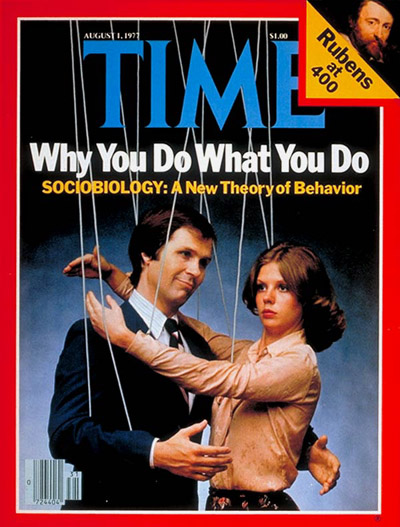
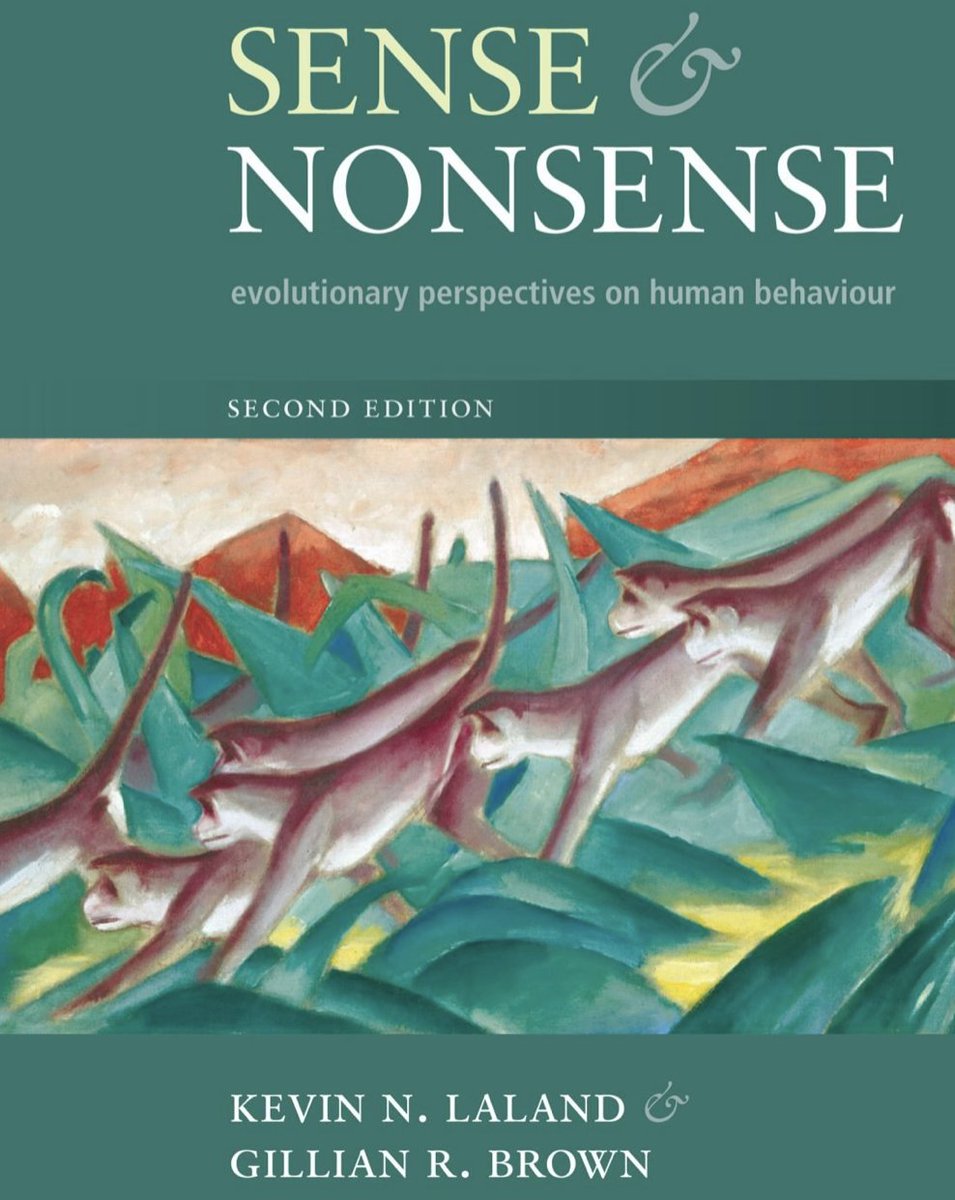 Sense & Nonsense by Laland & @GillianRBrown1 (2011). Provides a great introduction to evolutionary approaches to human behavior - I hope a 3rd edition of this book comes along soon!!" title="Key readings: Chapters 1-3 of the highly recommendedhttps://abs.twimg.com/emoji/v2/... draggable="false" alt="💫" title="Symbol für Benommenheit" aria-label="Emoji: Symbol für Benommenheit"> Sense & Nonsense by Laland & @GillianRBrown1 (2011). Provides a great introduction to evolutionary approaches to human behavior - I hope a 3rd edition of this book comes along soon!!" class="img-responsive" style="max-width:100%;"/>
Sense & Nonsense by Laland & @GillianRBrown1 (2011). Provides a great introduction to evolutionary approaches to human behavior - I hope a 3rd edition of this book comes along soon!!" title="Key readings: Chapters 1-3 of the highly recommendedhttps://abs.twimg.com/emoji/v2/... draggable="false" alt="💫" title="Symbol für Benommenheit" aria-label="Emoji: Symbol für Benommenheit"> Sense & Nonsense by Laland & @GillianRBrown1 (2011). Provides a great introduction to evolutionary approaches to human behavior - I hope a 3rd edition of this book comes along soon!!" class="img-responsive" style="max-width:100%;"/>
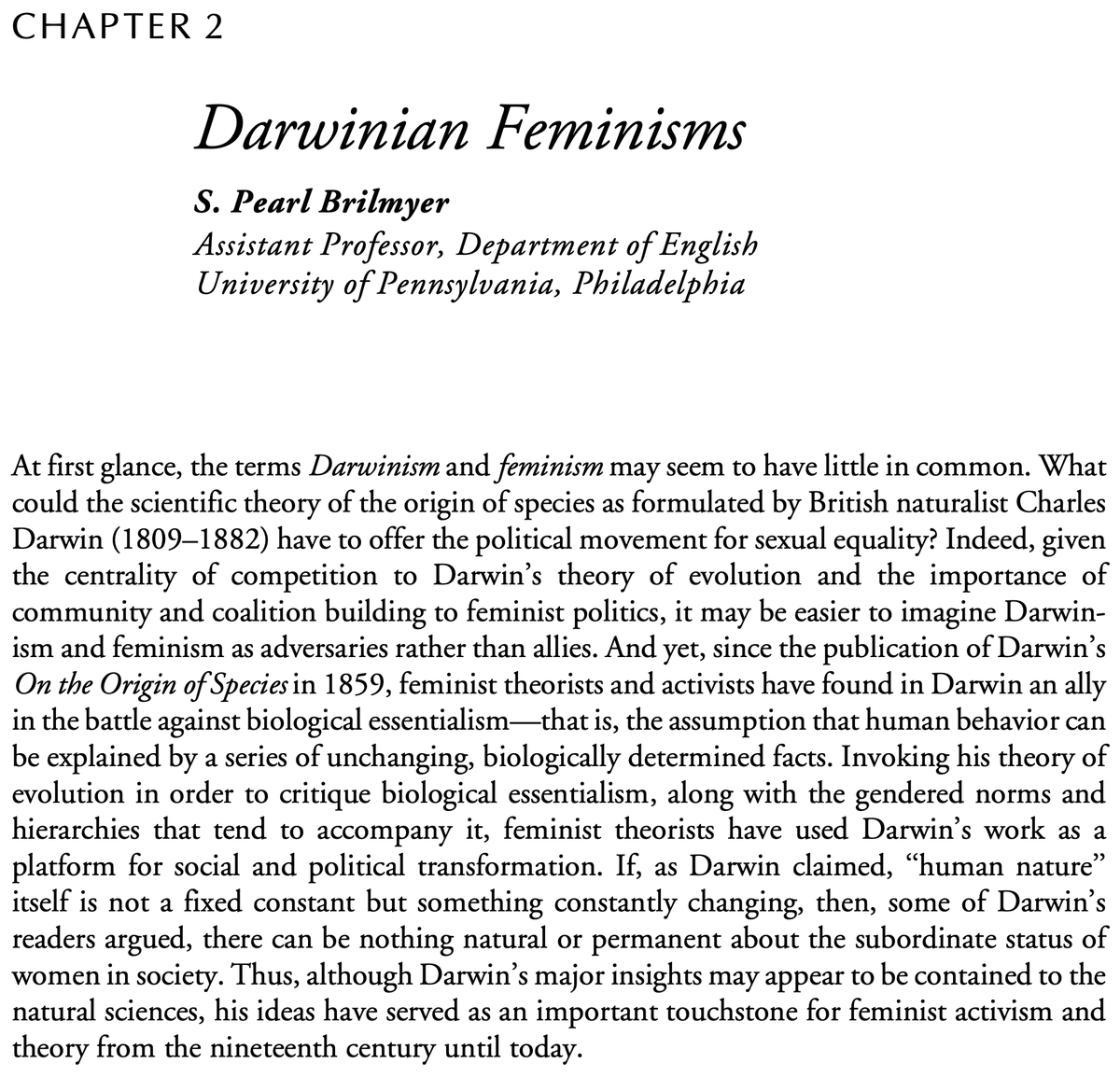
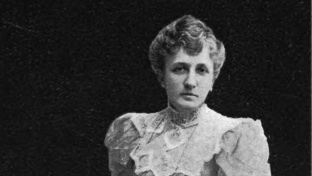


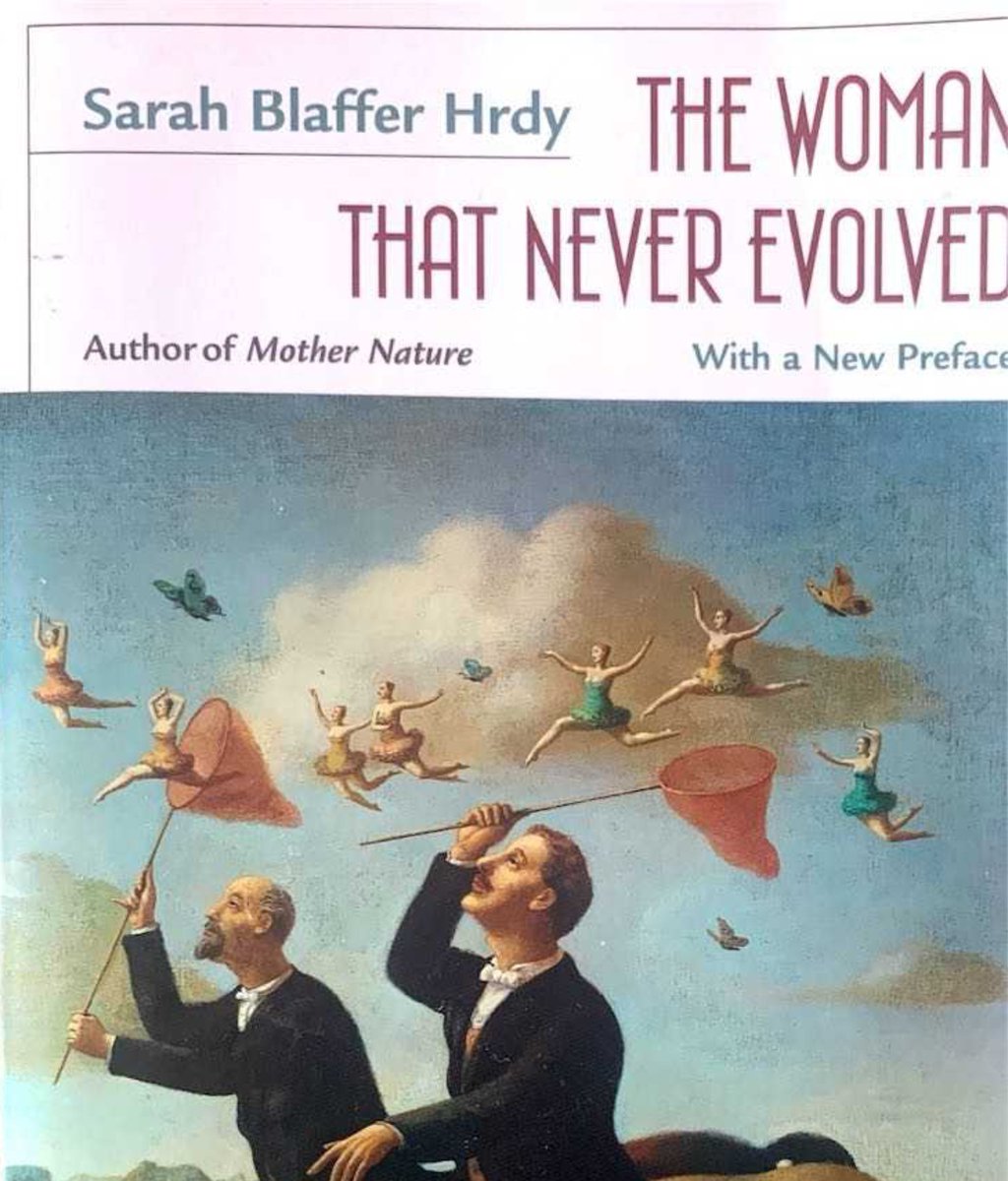
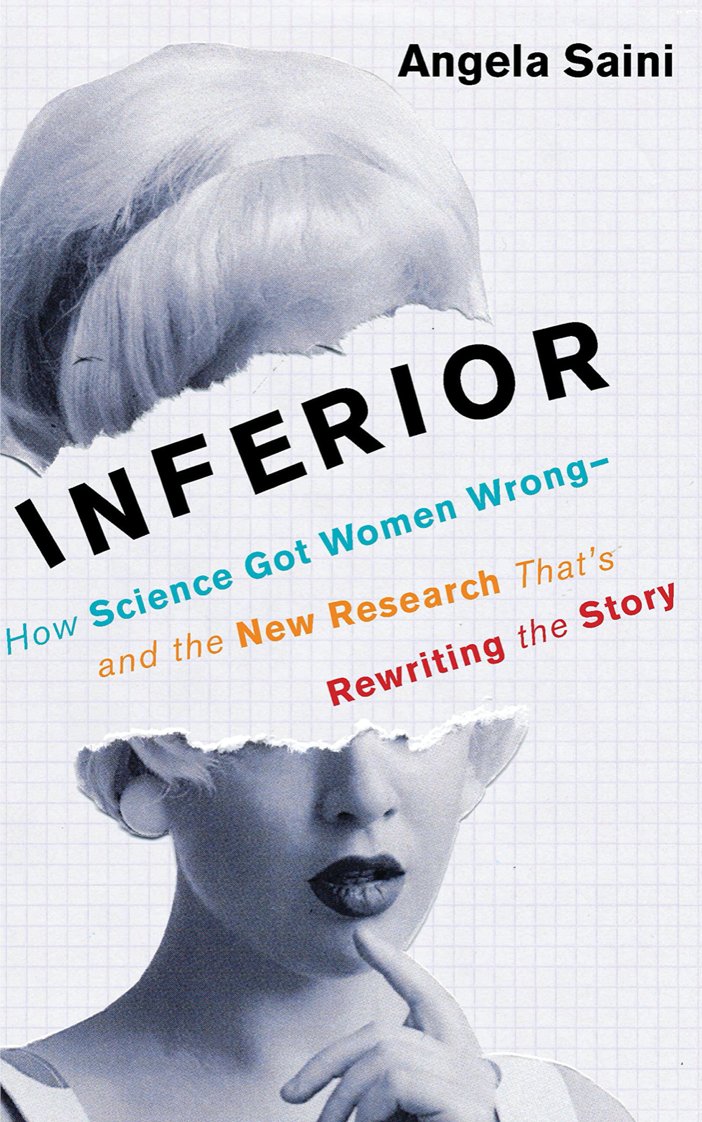 https://abs.twimg.com/emoji/v2/... draggable="false" alt="🤓" title="Nerd-Gesicht" aria-label="Emoji: Nerd-Gesicht">" title="Lots more to come, & lots of optional readings on the side (including some pictured here) - too much to tweet. But we welcome any recommendations now & each week going forward. I hope this thread might also connect folks with similar research interests...https://abs.twimg.com/emoji/v2/... draggable="false" alt="🤞" title="Crossed fingers" aria-label="Emoji: Crossed fingers">https://abs.twimg.com/emoji/v2/... draggable="false" alt="🤓" title="Nerd-Gesicht" aria-label="Emoji: Nerd-Gesicht">">
https://abs.twimg.com/emoji/v2/... draggable="false" alt="🤓" title="Nerd-Gesicht" aria-label="Emoji: Nerd-Gesicht">" title="Lots more to come, & lots of optional readings on the side (including some pictured here) - too much to tweet. But we welcome any recommendations now & each week going forward. I hope this thread might also connect folks with similar research interests...https://abs.twimg.com/emoji/v2/... draggable="false" alt="🤞" title="Crossed fingers" aria-label="Emoji: Crossed fingers">https://abs.twimg.com/emoji/v2/... draggable="false" alt="🤓" title="Nerd-Gesicht" aria-label="Emoji: Nerd-Gesicht">">
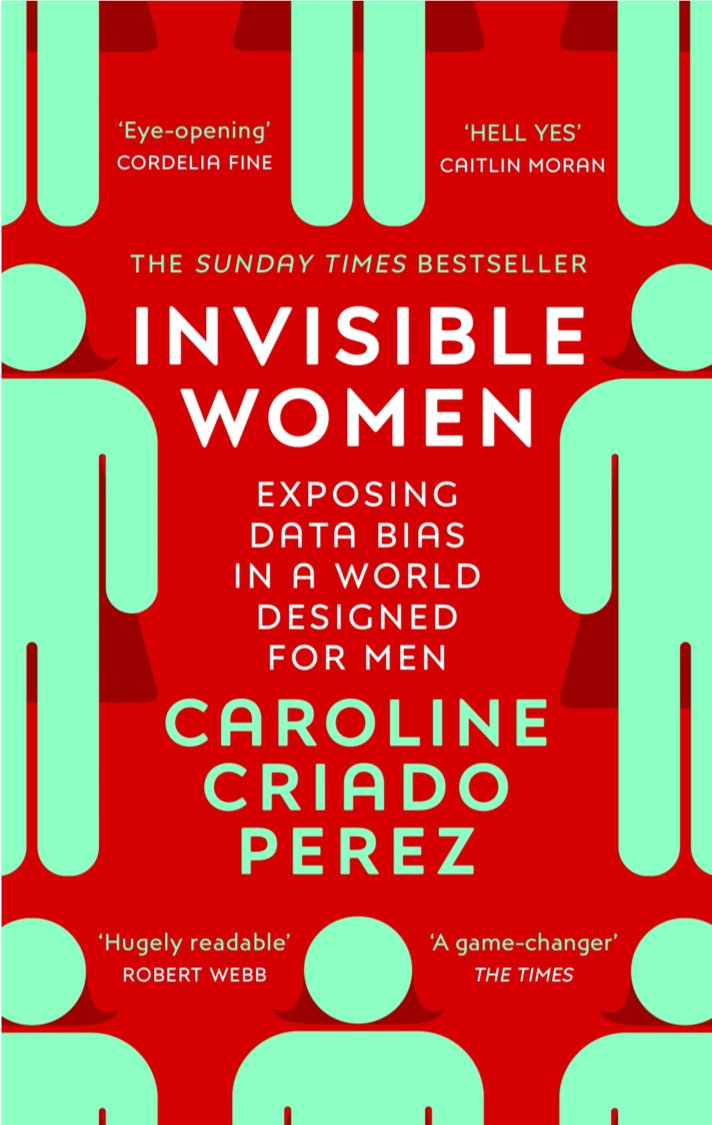 https://abs.twimg.com/emoji/v2/... draggable="false" alt="🤓" title="Nerd-Gesicht" aria-label="Emoji: Nerd-Gesicht">" title="Lots more to come, & lots of optional readings on the side (including some pictured here) - too much to tweet. But we welcome any recommendations now & each week going forward. I hope this thread might also connect folks with similar research interests...https://abs.twimg.com/emoji/v2/... draggable="false" alt="🤞" title="Crossed fingers" aria-label="Emoji: Crossed fingers">https://abs.twimg.com/emoji/v2/... draggable="false" alt="🤓" title="Nerd-Gesicht" aria-label="Emoji: Nerd-Gesicht">">
https://abs.twimg.com/emoji/v2/... draggable="false" alt="🤓" title="Nerd-Gesicht" aria-label="Emoji: Nerd-Gesicht">" title="Lots more to come, & lots of optional readings on the side (including some pictured here) - too much to tweet. But we welcome any recommendations now & each week going forward. I hope this thread might also connect folks with similar research interests...https://abs.twimg.com/emoji/v2/... draggable="false" alt="🤞" title="Crossed fingers" aria-label="Emoji: Crossed fingers">https://abs.twimg.com/emoji/v2/... draggable="false" alt="🤓" title="Nerd-Gesicht" aria-label="Emoji: Nerd-Gesicht">">
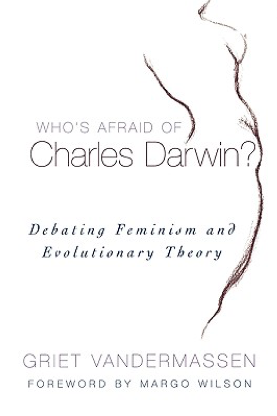 https://abs.twimg.com/emoji/v2/... draggable="false" alt="🤓" title="Nerd-Gesicht" aria-label="Emoji: Nerd-Gesicht">" title="Lots more to come, & lots of optional readings on the side (including some pictured here) - too much to tweet. But we welcome any recommendations now & each week going forward. I hope this thread might also connect folks with similar research interests...https://abs.twimg.com/emoji/v2/... draggable="false" alt="🤞" title="Crossed fingers" aria-label="Emoji: Crossed fingers">https://abs.twimg.com/emoji/v2/... draggable="false" alt="🤓" title="Nerd-Gesicht" aria-label="Emoji: Nerd-Gesicht">">
https://abs.twimg.com/emoji/v2/... draggable="false" alt="🤓" title="Nerd-Gesicht" aria-label="Emoji: Nerd-Gesicht">" title="Lots more to come, & lots of optional readings on the side (including some pictured here) - too much to tweet. But we welcome any recommendations now & each week going forward. I hope this thread might also connect folks with similar research interests...https://abs.twimg.com/emoji/v2/... draggable="false" alt="🤞" title="Crossed fingers" aria-label="Emoji: Crossed fingers">https://abs.twimg.com/emoji/v2/... draggable="false" alt="🤓" title="Nerd-Gesicht" aria-label="Emoji: Nerd-Gesicht">">
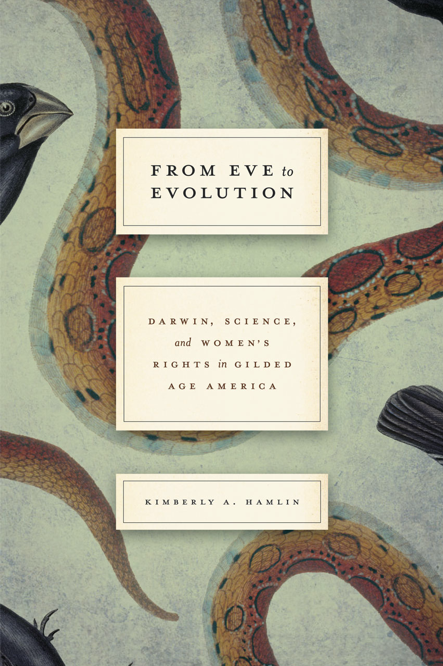 https://abs.twimg.com/emoji/v2/... draggable="false" alt="🤓" title="Nerd-Gesicht" aria-label="Emoji: Nerd-Gesicht">" title="Lots more to come, & lots of optional readings on the side (including some pictured here) - too much to tweet. But we welcome any recommendations now & each week going forward. I hope this thread might also connect folks with similar research interests...https://abs.twimg.com/emoji/v2/... draggable="false" alt="🤞" title="Crossed fingers" aria-label="Emoji: Crossed fingers">https://abs.twimg.com/emoji/v2/... draggable="false" alt="🤓" title="Nerd-Gesicht" aria-label="Emoji: Nerd-Gesicht">">
https://abs.twimg.com/emoji/v2/... draggable="false" alt="🤓" title="Nerd-Gesicht" aria-label="Emoji: Nerd-Gesicht">" title="Lots more to come, & lots of optional readings on the side (including some pictured here) - too much to tweet. But we welcome any recommendations now & each week going forward. I hope this thread might also connect folks with similar research interests...https://abs.twimg.com/emoji/v2/... draggable="false" alt="🤞" title="Crossed fingers" aria-label="Emoji: Crossed fingers">https://abs.twimg.com/emoji/v2/... draggable="false" alt="🤓" title="Nerd-Gesicht" aria-label="Emoji: Nerd-Gesicht">">
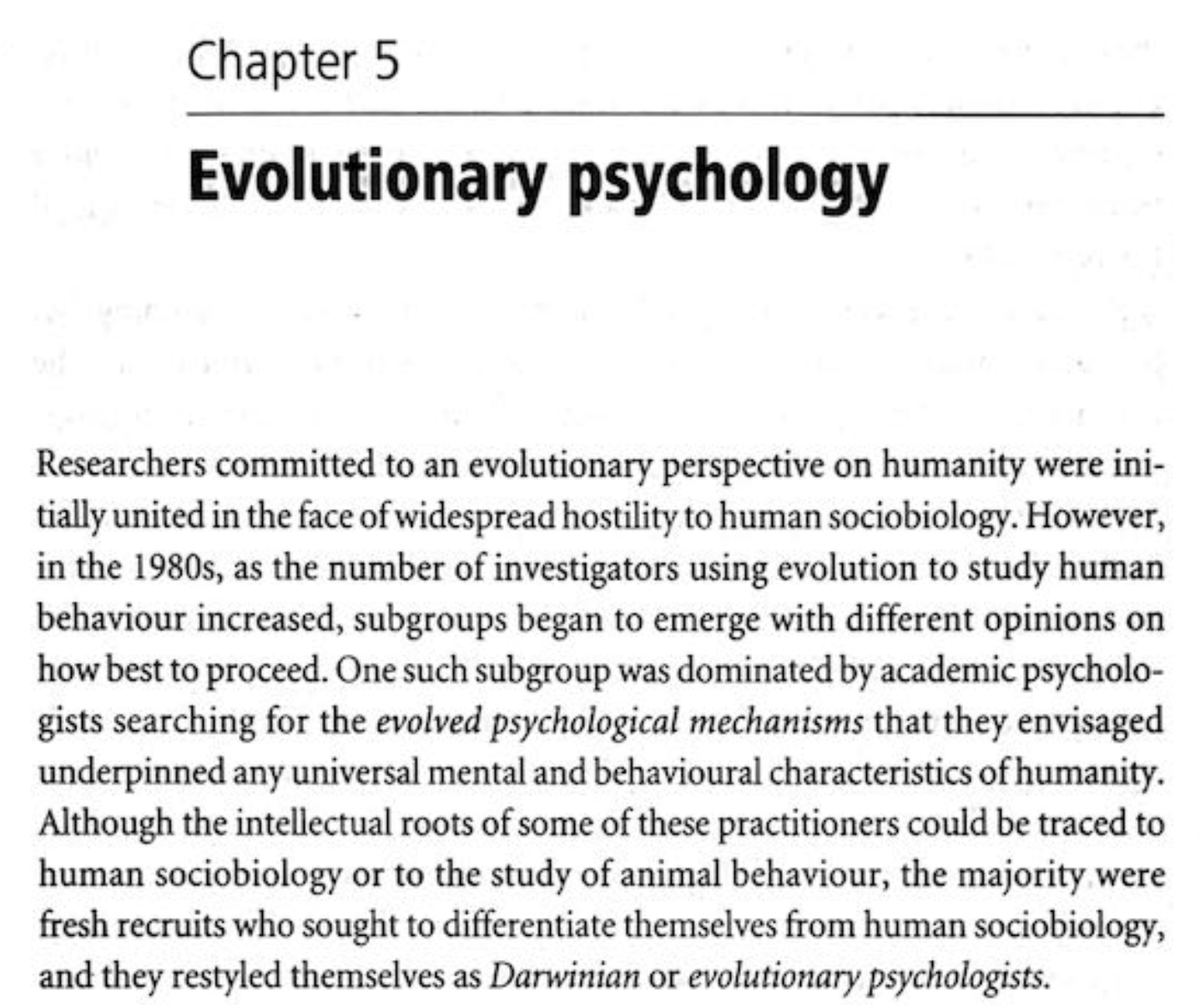
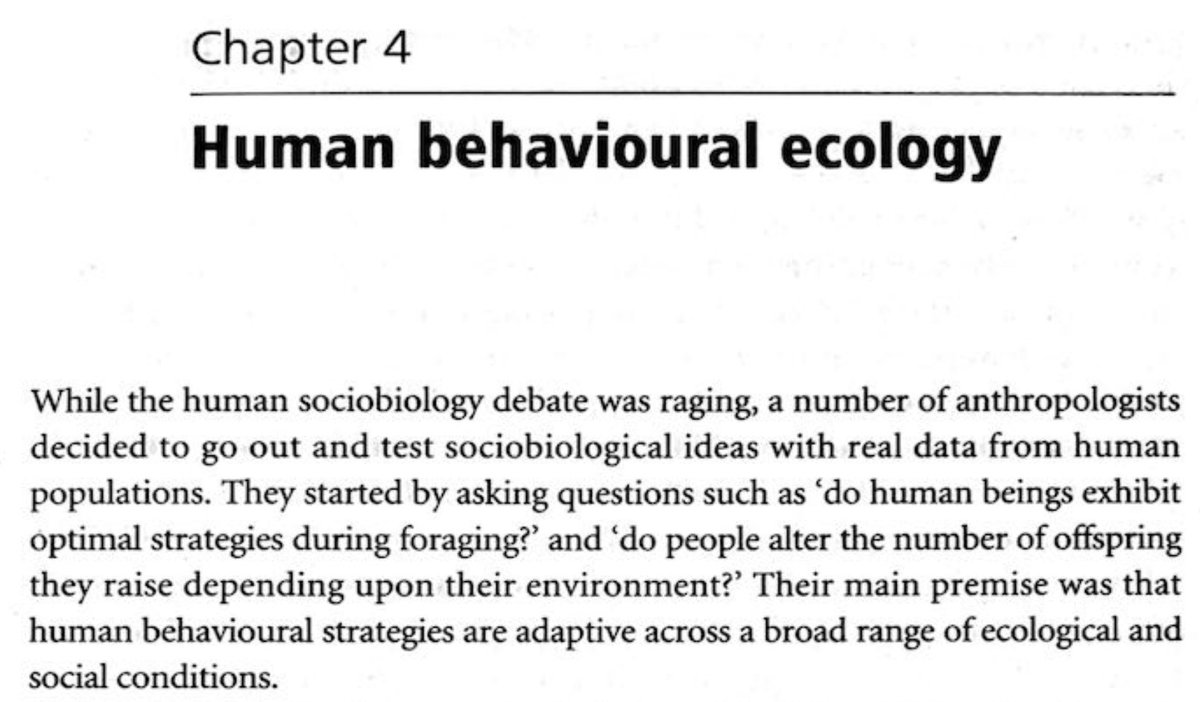


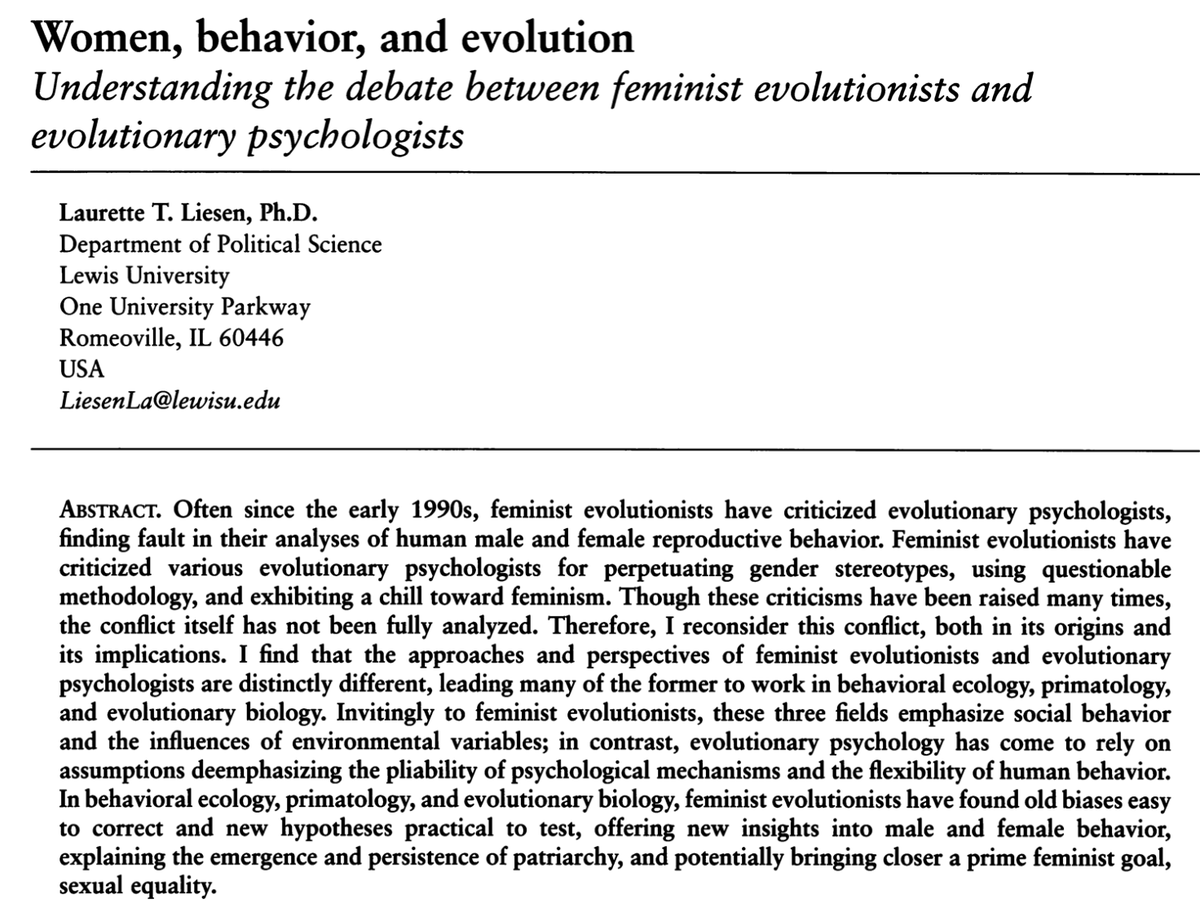 ?) exhibited a & #39;chill toward feminism& #39;, while in HBE feminist evolutionists & #39;have found old biases easy to correct & new hypotheses easy to test& #39;.." title="Followed by Liesen& #39;s (2007) provocative & under cited review & #39;Women, Behavior, & Evolution& #39;, which argues that EP has historically(https://abs.twimg.com/emoji/v2/... draggable="false" alt="🙃" title="Auf den Kopf gestelltes Gesicht" aria-label="Emoji: Auf den Kopf gestelltes Gesicht">?) exhibited a & #39;chill toward feminism& #39;, while in HBE feminist evolutionists & #39;have found old biases easy to correct & new hypotheses easy to test& #39;.." class="img-responsive" style="max-width:100%;"/>
?) exhibited a & #39;chill toward feminism& #39;, while in HBE feminist evolutionists & #39;have found old biases easy to correct & new hypotheses easy to test& #39;.." title="Followed by Liesen& #39;s (2007) provocative & under cited review & #39;Women, Behavior, & Evolution& #39;, which argues that EP has historically(https://abs.twimg.com/emoji/v2/... draggable="false" alt="🙃" title="Auf den Kopf gestelltes Gesicht" aria-label="Emoji: Auf den Kopf gestelltes Gesicht">?) exhibited a & #39;chill toward feminism& #39;, while in HBE feminist evolutionists & #39;have found old biases easy to correct & new hypotheses easy to test& #39;.." class="img-responsive" style="max-width:100%;"/>
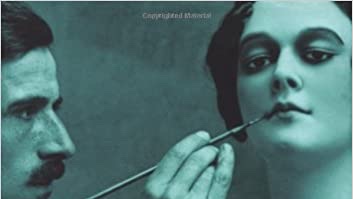

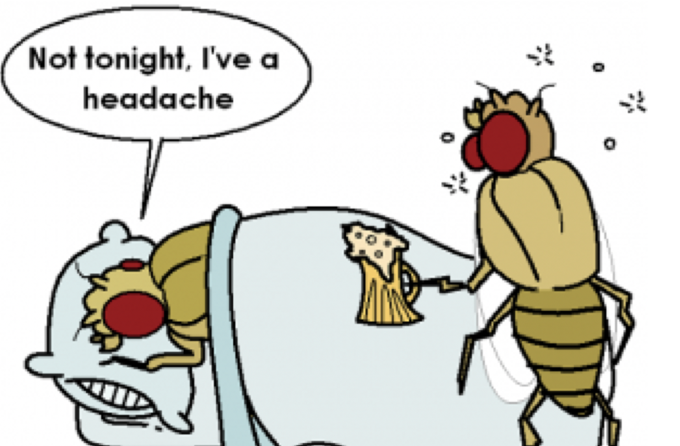 can do. But welcome any other suggested readings... next week we turn to the Bateman-Trivers paradigm...https://abs.twimg.com/emoji/v2/... draggable="false" alt="💔" title="Gebrochenes Herz" aria-label="Emoji: Gebrochenes Herz">https://abs.twimg.com/emoji/v2/... draggable="false" alt="🪰" title="Fly" aria-label="Emoji: Fly">" title="As always, more to say here than a twitter https://abs.twimg.com/emoji/v2/... draggable="false" alt="🧵" title="Thread" aria-label="Emoji: Thread">can do. But welcome any other suggested readings... next week we turn to the Bateman-Trivers paradigm...https://abs.twimg.com/emoji/v2/... draggable="false" alt="💔" title="Gebrochenes Herz" aria-label="Emoji: Gebrochenes Herz">https://abs.twimg.com/emoji/v2/... draggable="false" alt="🪰" title="Fly" aria-label="Emoji: Fly">" class="img-responsive" style="max-width:100%;"/>
can do. But welcome any other suggested readings... next week we turn to the Bateman-Trivers paradigm...https://abs.twimg.com/emoji/v2/... draggable="false" alt="💔" title="Gebrochenes Herz" aria-label="Emoji: Gebrochenes Herz">https://abs.twimg.com/emoji/v2/... draggable="false" alt="🪰" title="Fly" aria-label="Emoji: Fly">" title="As always, more to say here than a twitter https://abs.twimg.com/emoji/v2/... draggable="false" alt="🧵" title="Thread" aria-label="Emoji: Thread">can do. But welcome any other suggested readings... next week we turn to the Bateman-Trivers paradigm...https://abs.twimg.com/emoji/v2/... draggable="false" alt="💔" title="Gebrochenes Herz" aria-label="Emoji: Gebrochenes Herz">https://abs.twimg.com/emoji/v2/... draggable="false" alt="🪰" title="Fly" aria-label="Emoji: Fly">" class="img-responsive" style="max-width:100%;"/>
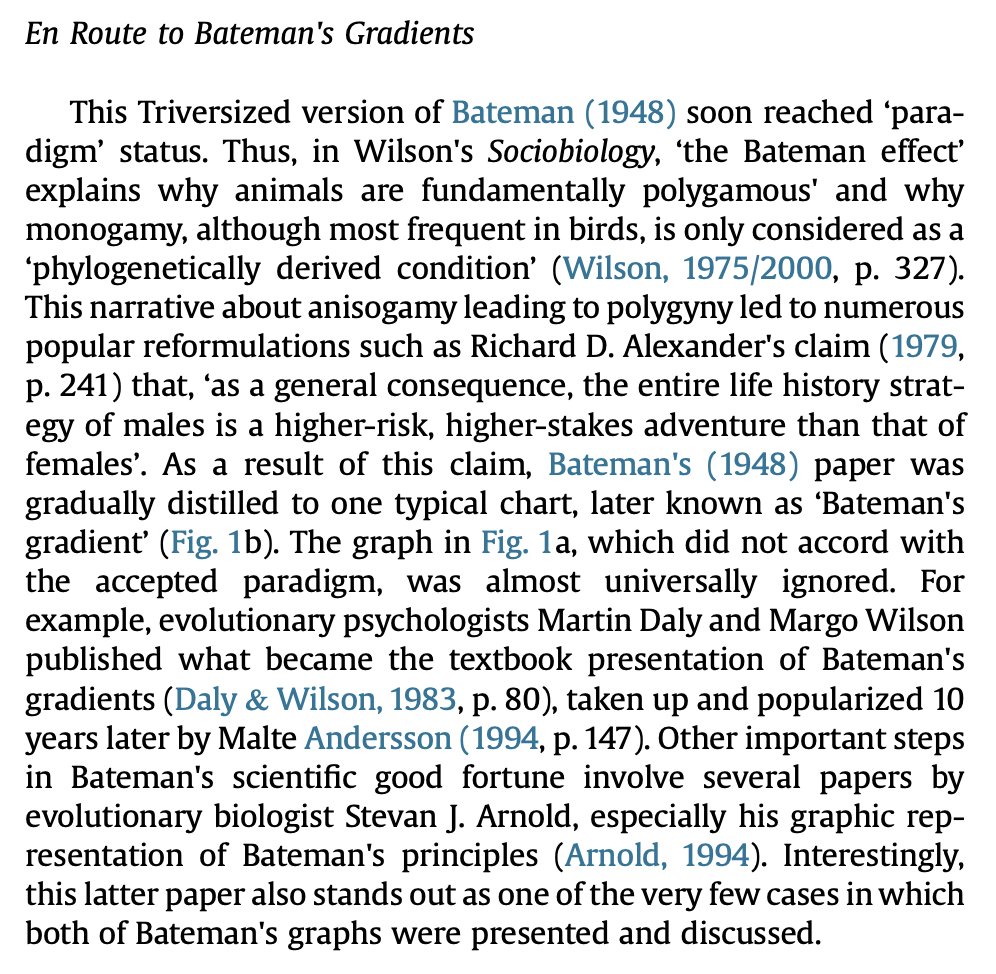
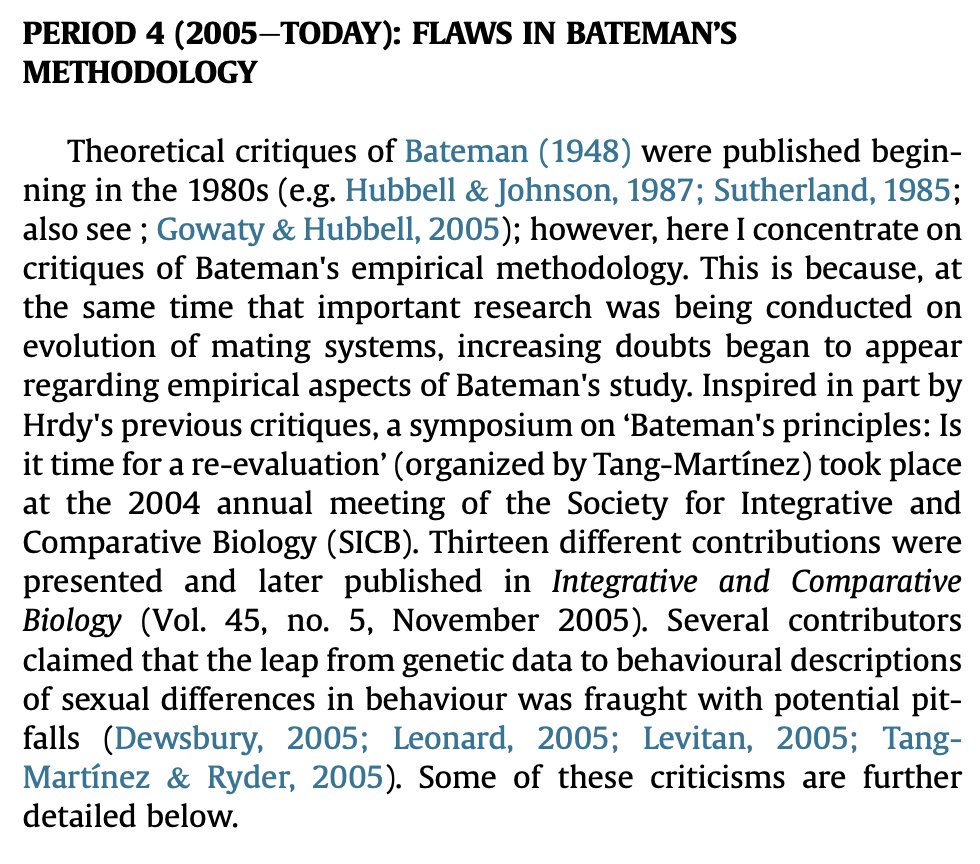

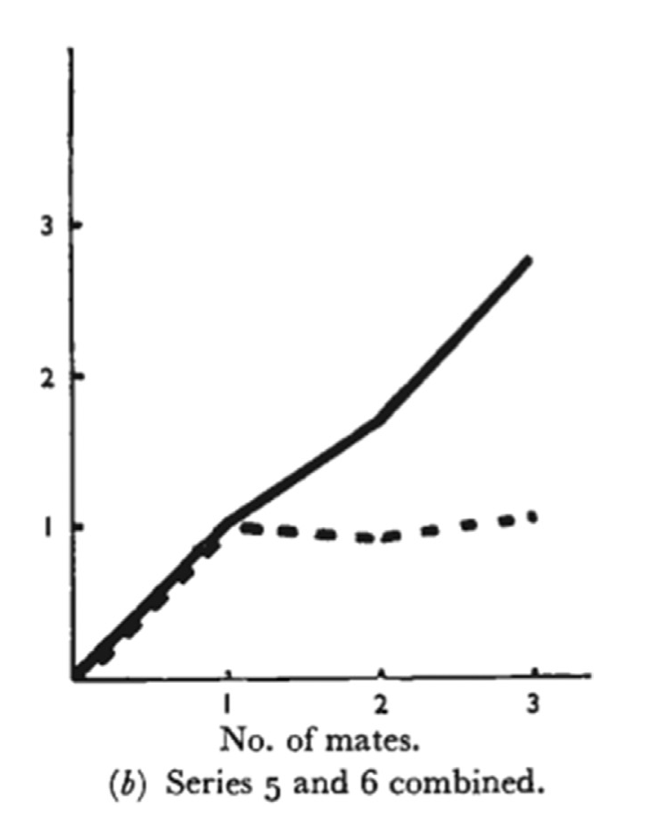

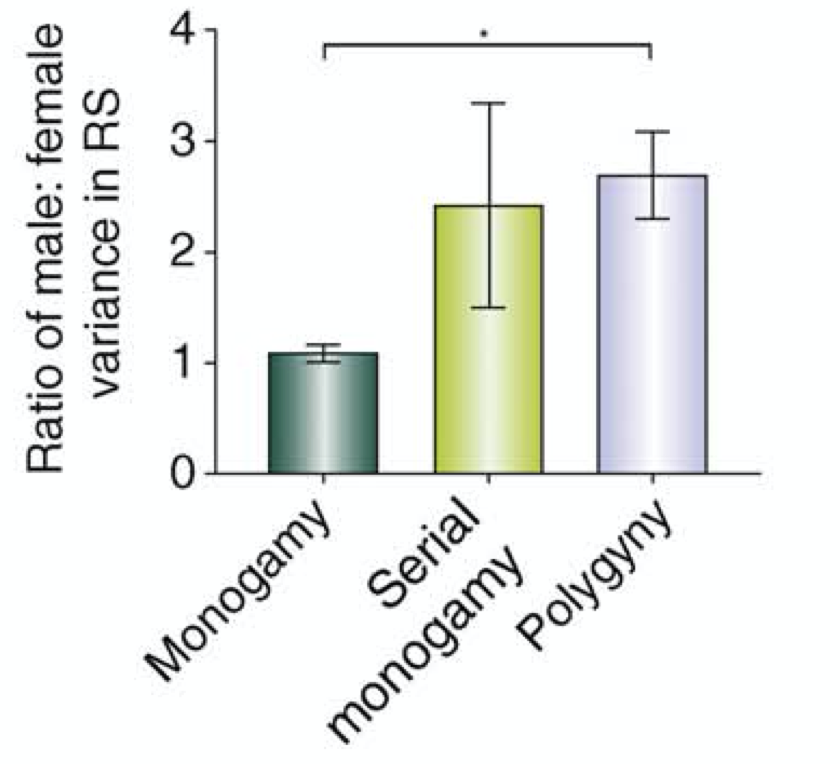
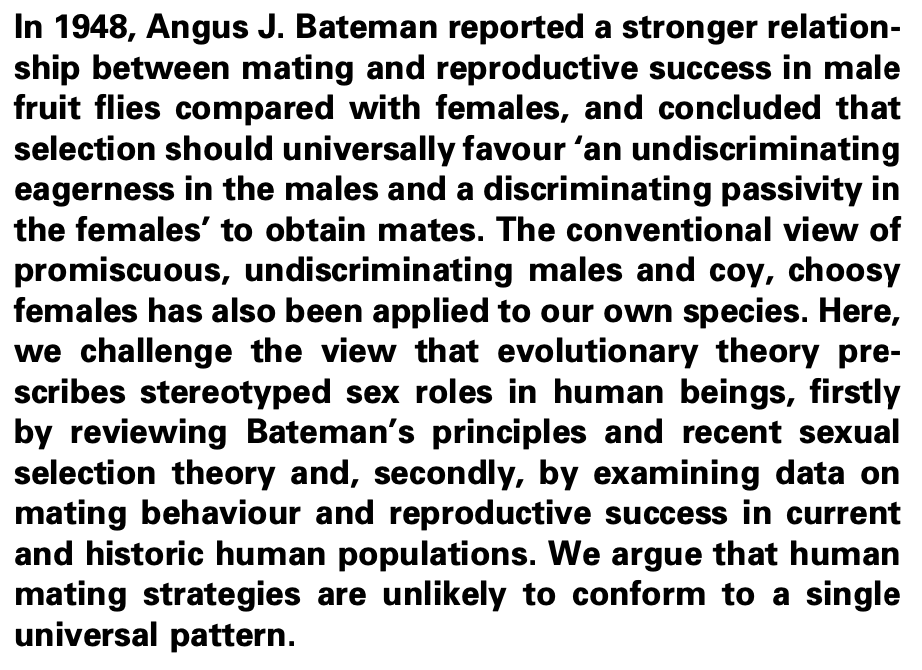
 " title="As a last reflection, we noted that debates about the applicability of the Bateman& #39;s paradigm to human sex roles seem to have filtered into evolutionary anthropology more so than evolutionary psychology... indicative of wider emphasis on variability vs. universals??https://abs.twimg.com/emoji/v2/... draggable="false" alt="🤷" title="Person shrugging" aria-label="Emoji: Person shrugging">" class="img-responsive" style="max-width:100%;"/>
" title="As a last reflection, we noted that debates about the applicability of the Bateman& #39;s paradigm to human sex roles seem to have filtered into evolutionary anthropology more so than evolutionary psychology... indicative of wider emphasis on variability vs. universals??https://abs.twimg.com/emoji/v2/... draggable="false" alt="🤷" title="Person shrugging" aria-label="Emoji: Person shrugging">" class="img-responsive" style="max-width:100%;"/>
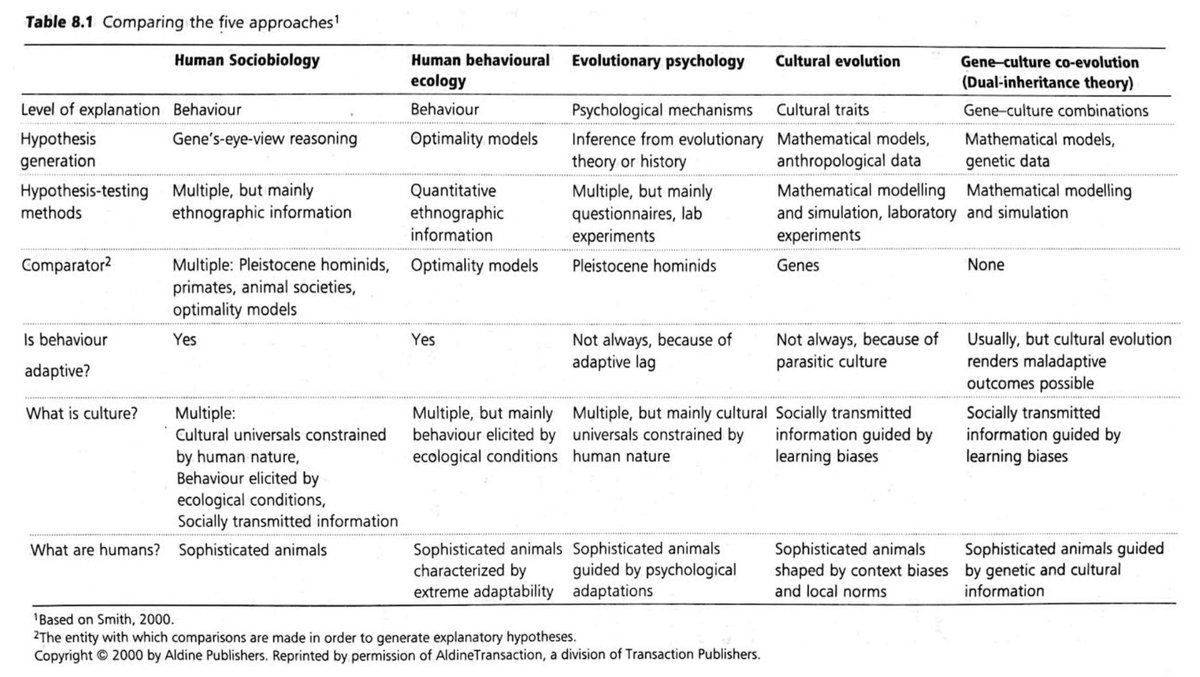
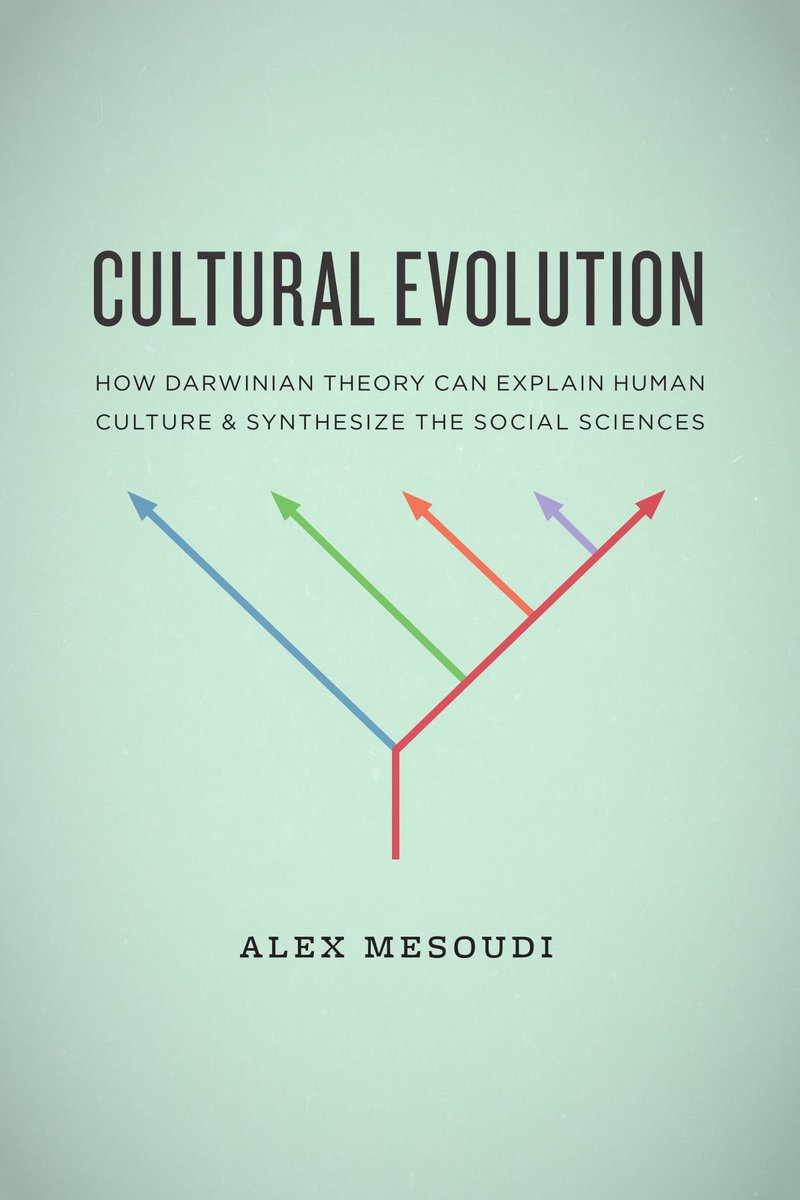
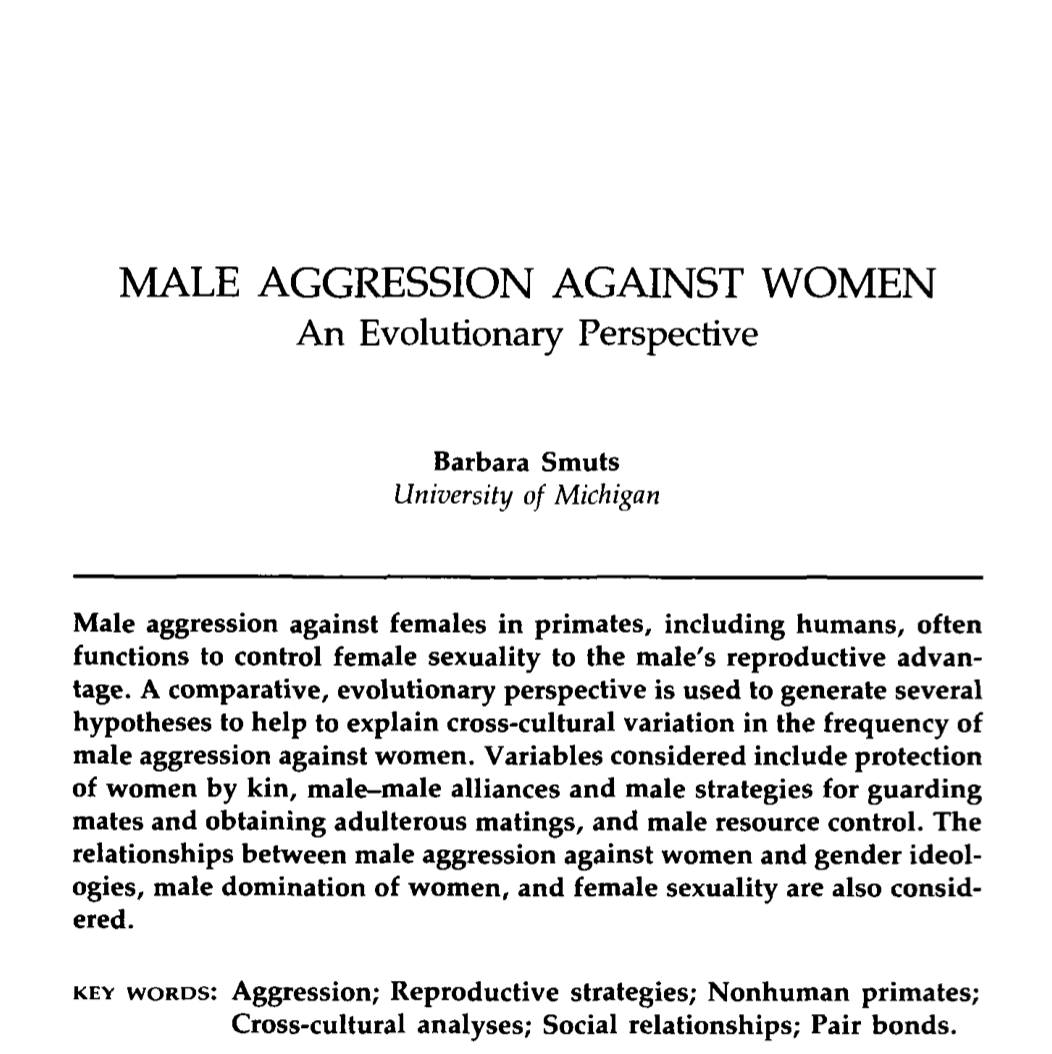
 coercion, but https://abs.twimg.com/emoji/v2/... draggable="false" alt="♀️" title="Weibliches Zeichen" aria-label="Emoji: Weibliches Zeichen">counterstrategies, & sexual conflict over other traits such as growth or family size..." title="In the meantime, Borgerhoff Mulder & Rauch (2009) get close to this goal & highlight the explosion of evolutionary research on sexual conflict theory since Smuts. Not just on https://abs.twimg.com/emoji/v2/... draggable="false" alt="♂️" title="Männliches Zeichen" aria-label="Emoji: Männliches Zeichen">coercion, but https://abs.twimg.com/emoji/v2/... draggable="false" alt="♀️" title="Weibliches Zeichen" aria-label="Emoji: Weibliches Zeichen">counterstrategies, & sexual conflict over other traits such as growth or family size...">
coercion, but https://abs.twimg.com/emoji/v2/... draggable="false" alt="♀️" title="Weibliches Zeichen" aria-label="Emoji: Weibliches Zeichen">counterstrategies, & sexual conflict over other traits such as growth or family size..." title="In the meantime, Borgerhoff Mulder & Rauch (2009) get close to this goal & highlight the explosion of evolutionary research on sexual conflict theory since Smuts. Not just on https://abs.twimg.com/emoji/v2/... draggable="false" alt="♂️" title="Männliches Zeichen" aria-label="Emoji: Männliches Zeichen">coercion, but https://abs.twimg.com/emoji/v2/... draggable="false" alt="♀️" title="Weibliches Zeichen" aria-label="Emoji: Weibliches Zeichen">counterstrategies, & sexual conflict over other traits such as growth or family size...">
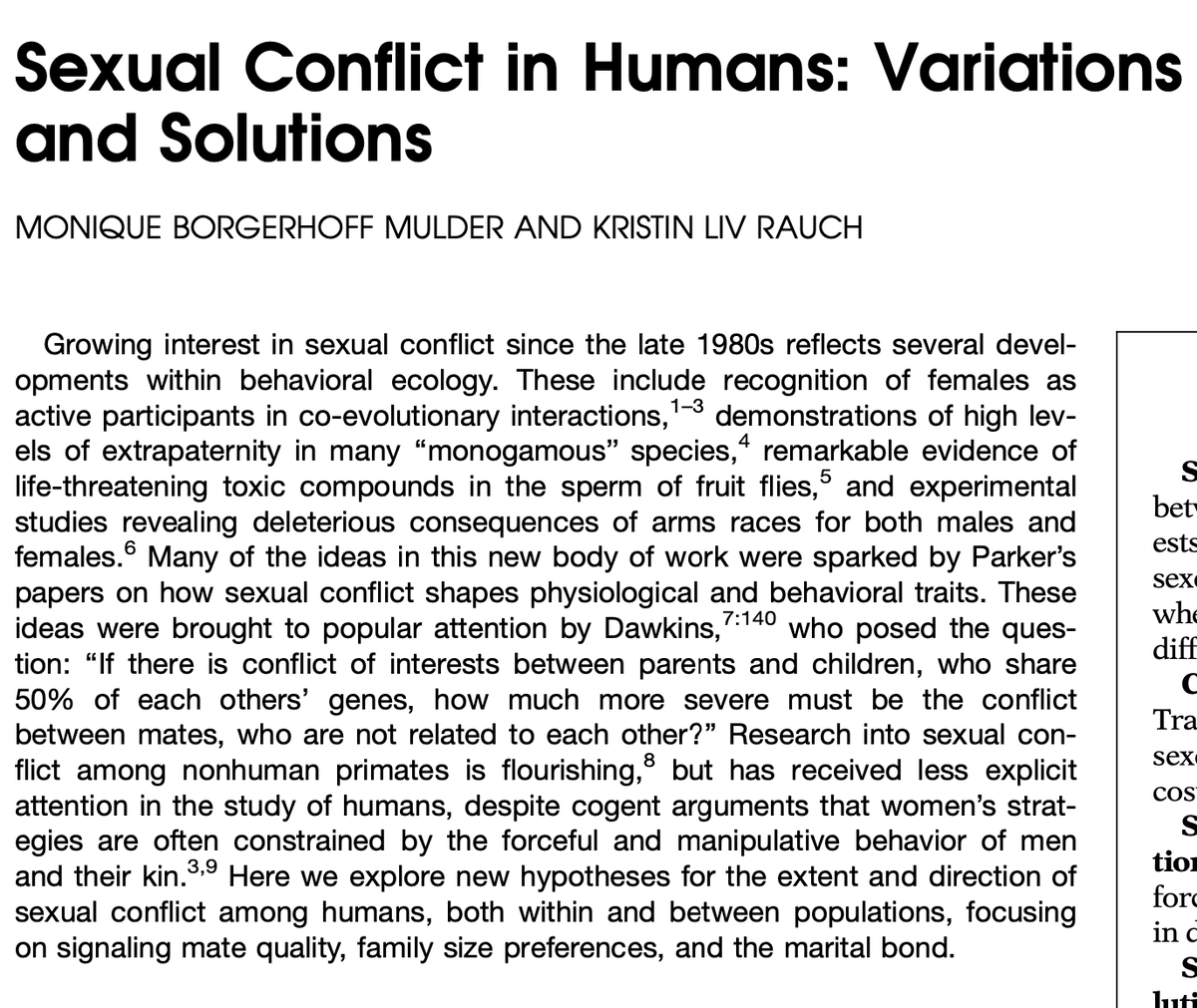 coercion, but https://abs.twimg.com/emoji/v2/... draggable="false" alt="♀️" title="Weibliches Zeichen" aria-label="Emoji: Weibliches Zeichen">counterstrategies, & sexual conflict over other traits such as growth or family size..." title="In the meantime, Borgerhoff Mulder & Rauch (2009) get close to this goal & highlight the explosion of evolutionary research on sexual conflict theory since Smuts. Not just on https://abs.twimg.com/emoji/v2/... draggable="false" alt="♂️" title="Männliches Zeichen" aria-label="Emoji: Männliches Zeichen">coercion, but https://abs.twimg.com/emoji/v2/... draggable="false" alt="♀️" title="Weibliches Zeichen" aria-label="Emoji: Weibliches Zeichen">counterstrategies, & sexual conflict over other traits such as growth or family size...">
coercion, but https://abs.twimg.com/emoji/v2/... draggable="false" alt="♀️" title="Weibliches Zeichen" aria-label="Emoji: Weibliches Zeichen">counterstrategies, & sexual conflict over other traits such as growth or family size..." title="In the meantime, Borgerhoff Mulder & Rauch (2009) get close to this goal & highlight the explosion of evolutionary research on sexual conflict theory since Smuts. Not just on https://abs.twimg.com/emoji/v2/... draggable="false" alt="♂️" title="Männliches Zeichen" aria-label="Emoji: Männliches Zeichen">coercion, but https://abs.twimg.com/emoji/v2/... draggable="false" alt="♀️" title="Weibliches Zeichen" aria-label="Emoji: Weibliches Zeichen">counterstrategies, & sexual conflict over other traits such as growth or family size...">
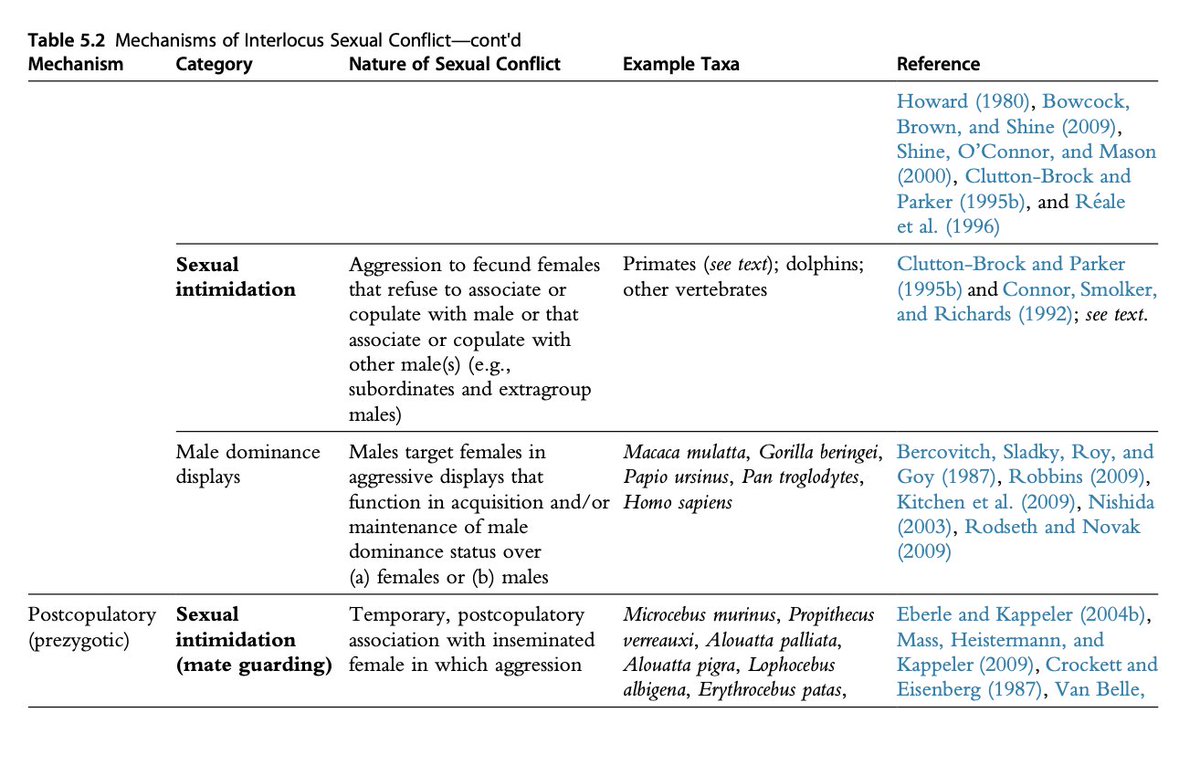 s. And some great quotes, like this one from Tregenza, Wedell & Chapman (2006)..." title="Particularly useful here are the summary tables reviewing different forms of sexual conflict... with individual case studies fleshed out in the main text for different https://abs.twimg.com/emoji/v2/... draggable="false" alt="🐒" title="Affe" aria-label="Emoji: Affe">s. And some great quotes, like this one from Tregenza, Wedell & Chapman (2006)...">
s. And some great quotes, like this one from Tregenza, Wedell & Chapman (2006)..." title="Particularly useful here are the summary tables reviewing different forms of sexual conflict... with individual case studies fleshed out in the main text for different https://abs.twimg.com/emoji/v2/... draggable="false" alt="🐒" title="Affe" aria-label="Emoji: Affe">s. And some great quotes, like this one from Tregenza, Wedell & Chapman (2006)...">
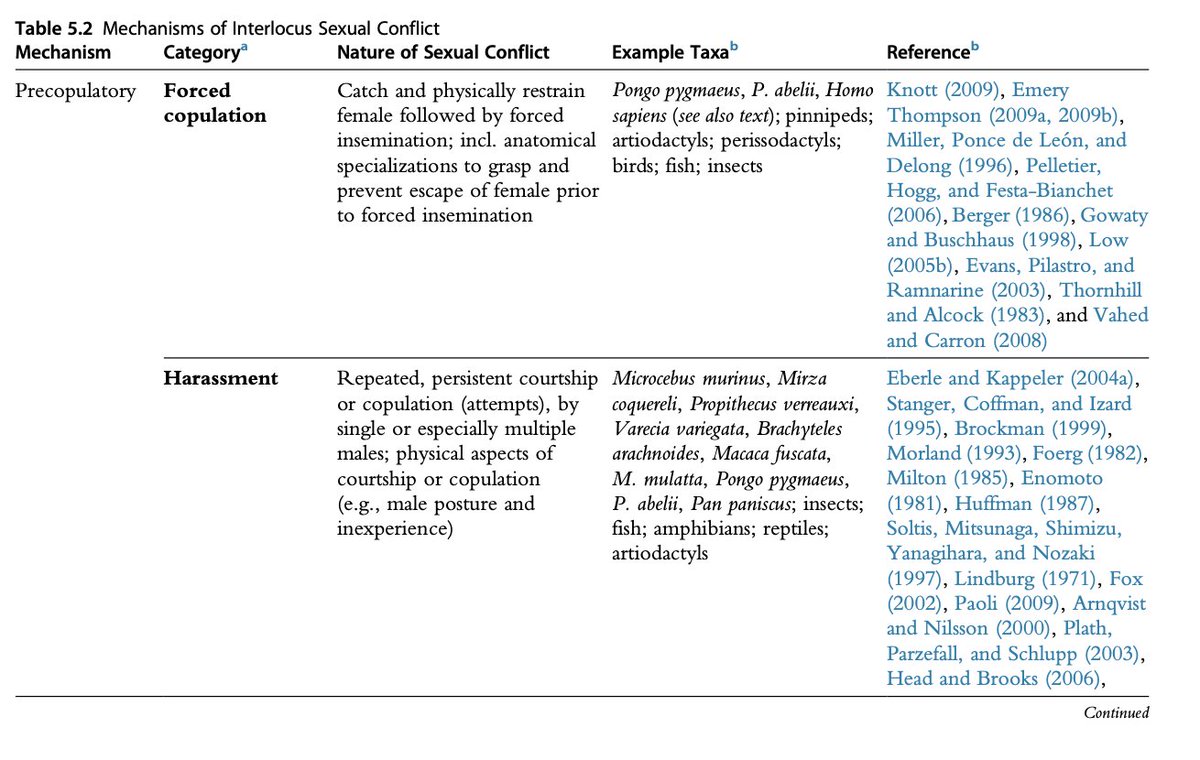 s. And some great quotes, like this one from Tregenza, Wedell & Chapman (2006)..." title="Particularly useful here are the summary tables reviewing different forms of sexual conflict... with individual case studies fleshed out in the main text for different https://abs.twimg.com/emoji/v2/... draggable="false" alt="🐒" title="Affe" aria-label="Emoji: Affe">s. And some great quotes, like this one from Tregenza, Wedell & Chapman (2006)...">
s. And some great quotes, like this one from Tregenza, Wedell & Chapman (2006)..." title="Particularly useful here are the summary tables reviewing different forms of sexual conflict... with individual case studies fleshed out in the main text for different https://abs.twimg.com/emoji/v2/... draggable="false" alt="🐒" title="Affe" aria-label="Emoji: Affe">s. And some great quotes, like this one from Tregenza, Wedell & Chapman (2006)...">
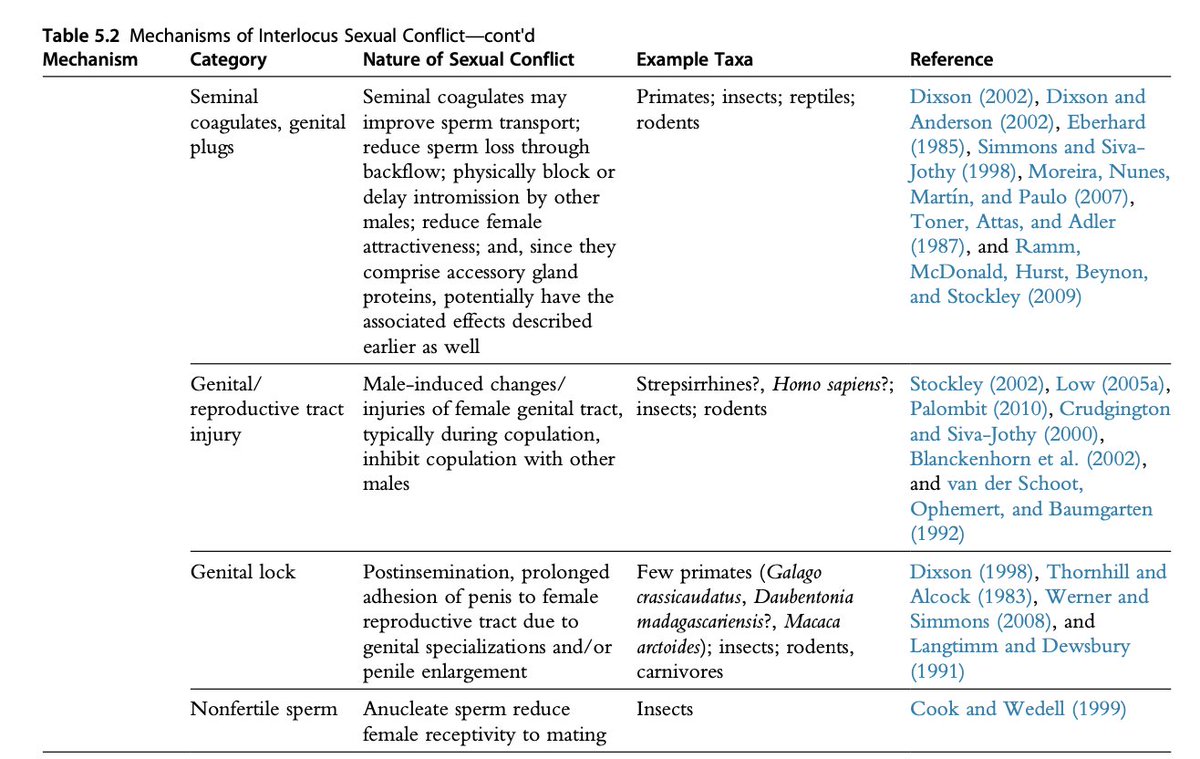 s. And some great quotes, like this one from Tregenza, Wedell & Chapman (2006)..." title="Particularly useful here are the summary tables reviewing different forms of sexual conflict... with individual case studies fleshed out in the main text for different https://abs.twimg.com/emoji/v2/... draggable="false" alt="🐒" title="Affe" aria-label="Emoji: Affe">s. And some great quotes, like this one from Tregenza, Wedell & Chapman (2006)...">
s. And some great quotes, like this one from Tregenza, Wedell & Chapman (2006)..." title="Particularly useful here are the summary tables reviewing different forms of sexual conflict... with individual case studies fleshed out in the main text for different https://abs.twimg.com/emoji/v2/... draggable="false" alt="🐒" title="Affe" aria-label="Emoji: Affe">s. And some great quotes, like this one from Tregenza, Wedell & Chapman (2006)...">
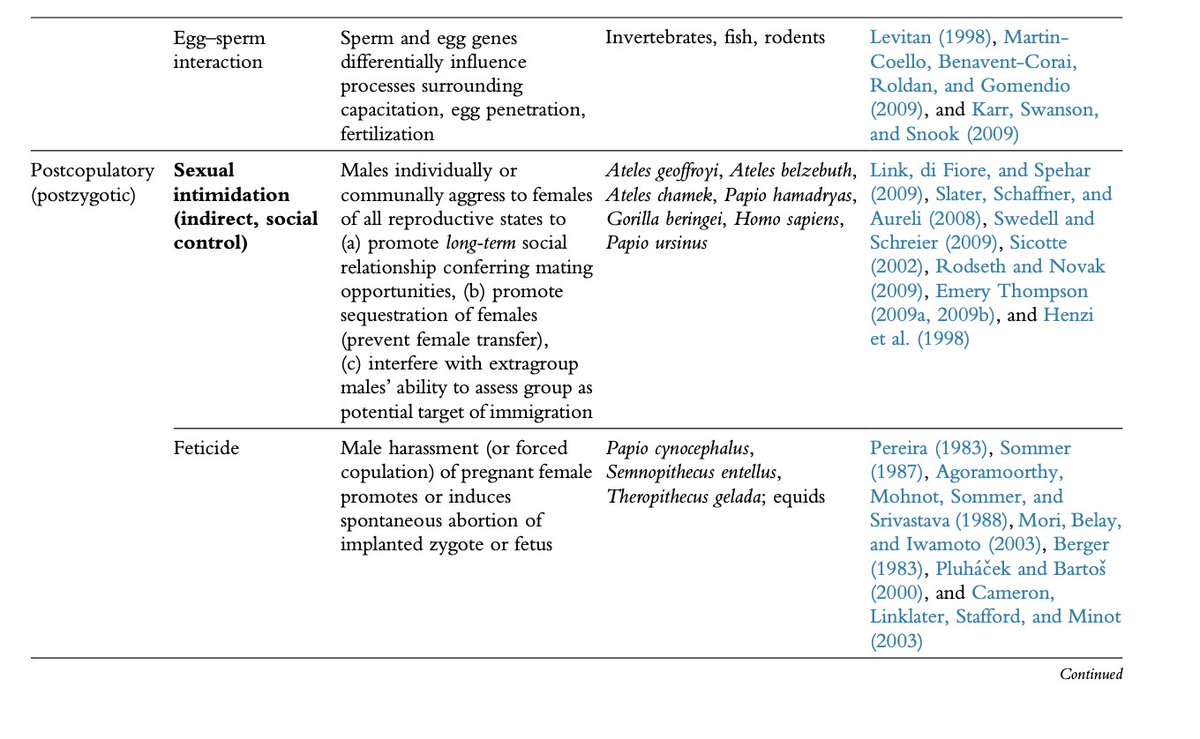 s. And some great quotes, like this one from Tregenza, Wedell & Chapman (2006)..." title="Particularly useful here are the summary tables reviewing different forms of sexual conflict... with individual case studies fleshed out in the main text for different https://abs.twimg.com/emoji/v2/... draggable="false" alt="🐒" title="Affe" aria-label="Emoji: Affe">s. And some great quotes, like this one from Tregenza, Wedell & Chapman (2006)...">
s. And some great quotes, like this one from Tregenza, Wedell & Chapman (2006)..." title="Particularly useful here are the summary tables reviewing different forms of sexual conflict... with individual case studies fleshed out in the main text for different https://abs.twimg.com/emoji/v2/... draggable="false" alt="🐒" title="Affe" aria-label="Emoji: Affe">s. And some great quotes, like this one from Tregenza, Wedell & Chapman (2006)...">

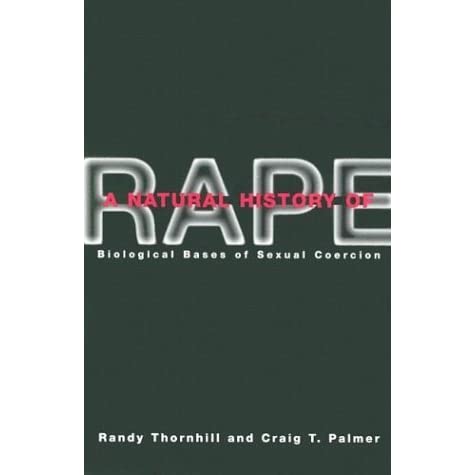
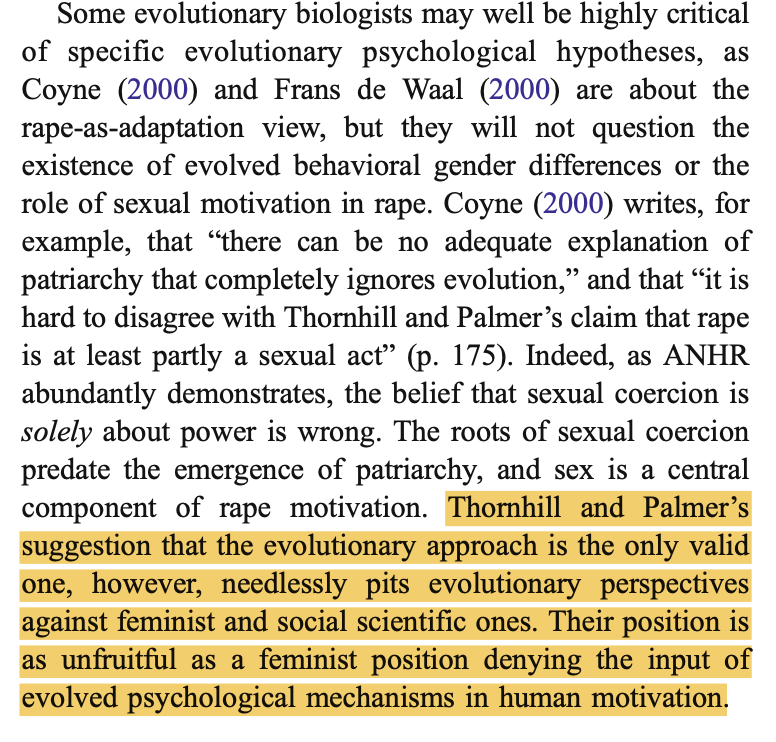
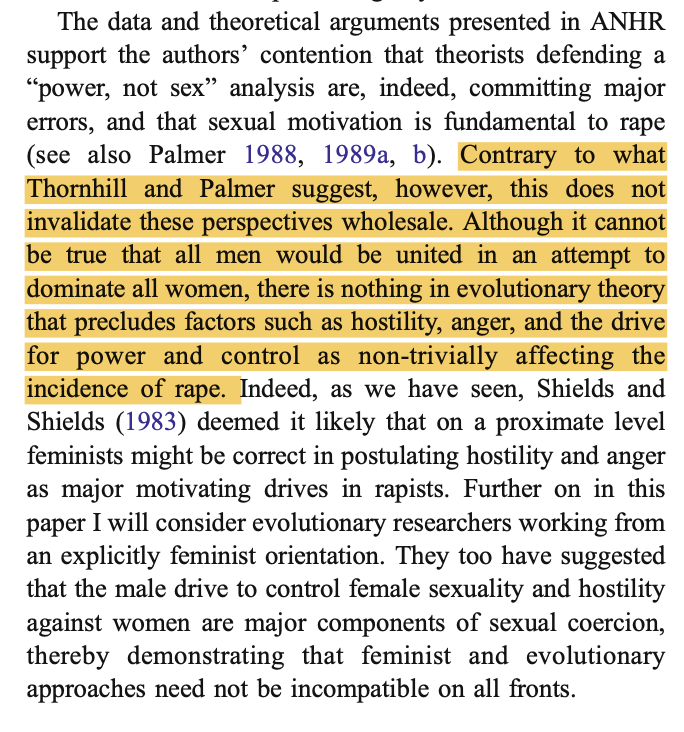

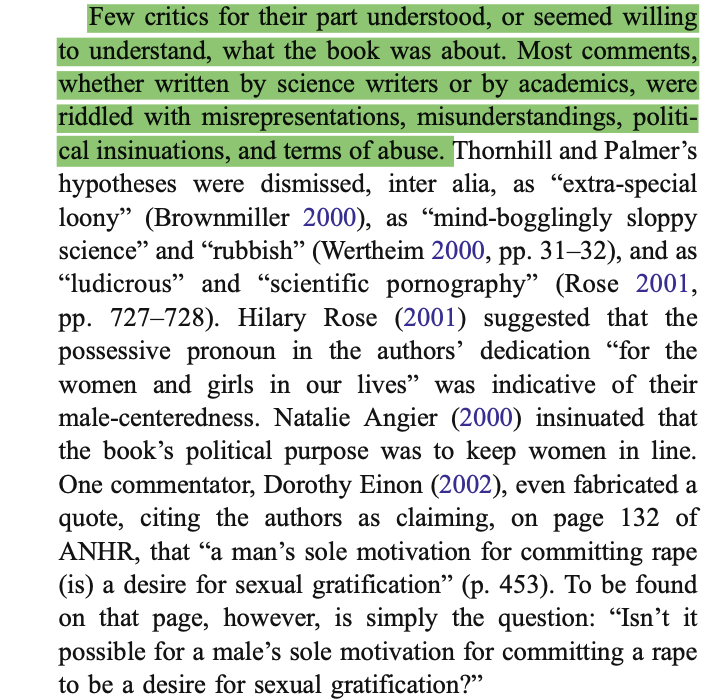
 , Vandermassen redirects the reader back to Smuts, & her explicit focus on sexual conflict, power inequalities & the formation of gender ideologies that restrict female power as a broader framework to address rape. I leave the final word then to Smuts..." title="Bringing us fullhttps://abs.twimg.com/emoji/v2/... draggable="false" alt="⭕️" title="Fetter großer Kreis" aria-label="Emoji: Fetter großer Kreis">, Vandermassen redirects the reader back to Smuts, & her explicit focus on sexual conflict, power inequalities & the formation of gender ideologies that restrict female power as a broader framework to address rape. I leave the final word then to Smuts..." class="img-responsive" style="max-width:100%;"/>
, Vandermassen redirects the reader back to Smuts, & her explicit focus on sexual conflict, power inequalities & the formation of gender ideologies that restrict female power as a broader framework to address rape. I leave the final word then to Smuts..." title="Bringing us fullhttps://abs.twimg.com/emoji/v2/... draggable="false" alt="⭕️" title="Fetter großer Kreis" aria-label="Emoji: Fetter großer Kreis">, Vandermassen redirects the reader back to Smuts, & her explicit focus on sexual conflict, power inequalities & the formation of gender ideologies that restrict female power as a broader framework to address rape. I leave the final word then to Smuts..." class="img-responsive" style="max-width:100%;"/>
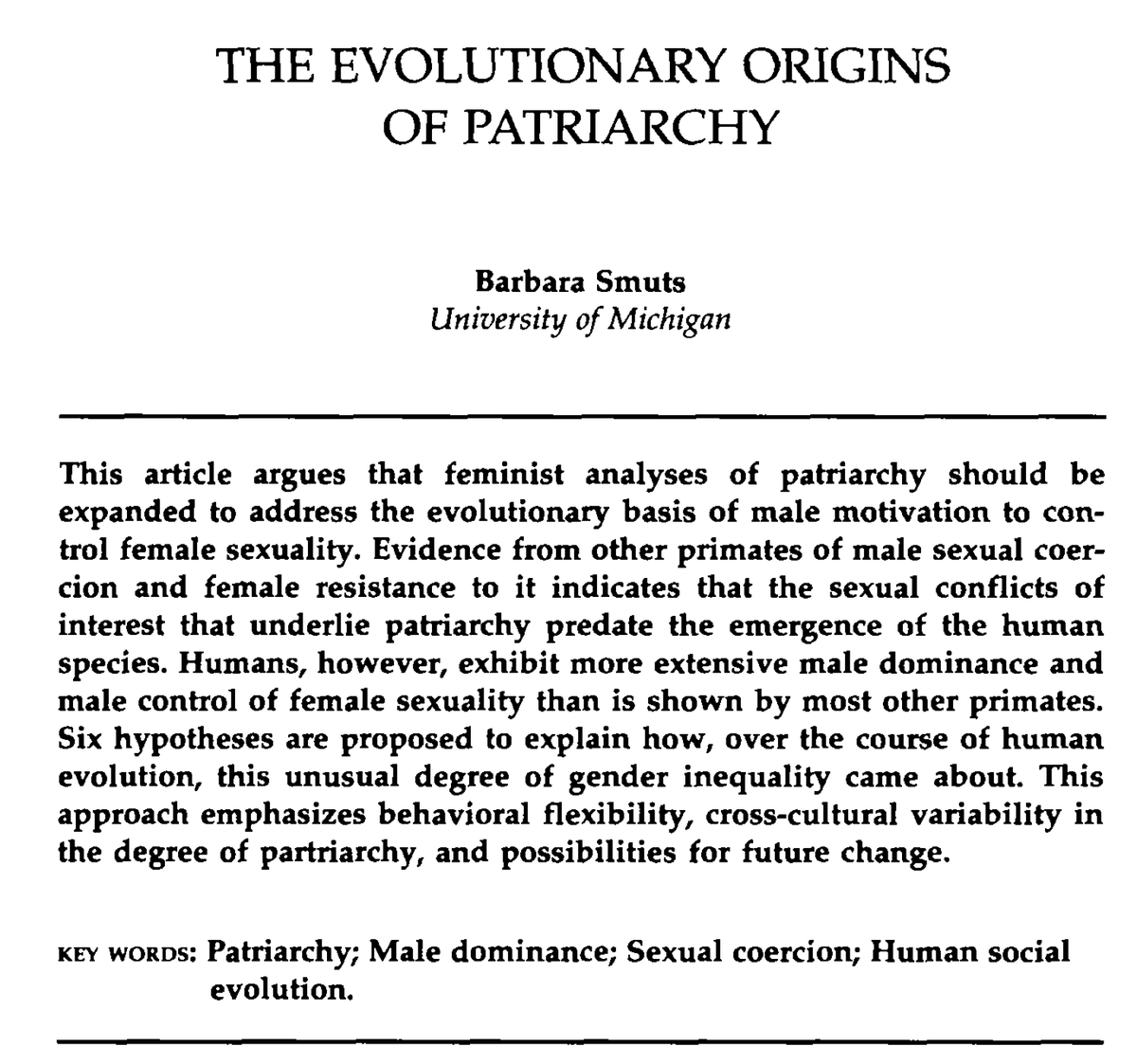

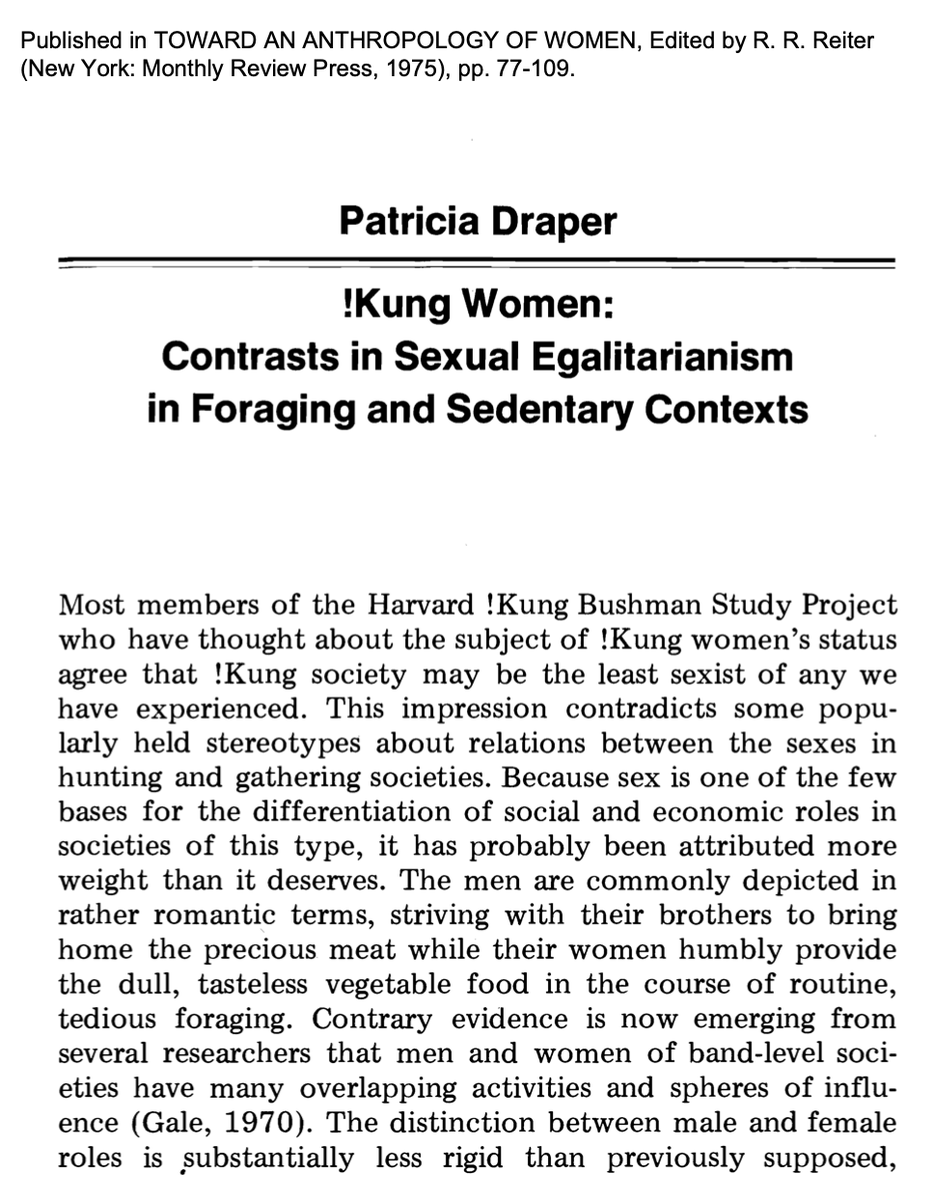 a classic by Patricia Draper (1975), arguing against (then prevalent) stereotypes of https://abs.twimg.com/emoji/v2/... draggable="false" alt="♂️" title="Männliches Zeichen" aria-label="Emoji: Männliches Zeichen">dominance in foragers "the point to be developed at some length, is that in the hunter gathering context, women have a great deal of autonomy & influence"..." title="We paired this with https://abs.twimg.com/emoji/v2/... draggable="false" alt="1⃣" title="Tastenkappe Ziffer 1" aria-label="Emoji: Tastenkappe Ziffer 1"> a classic by Patricia Draper (1975), arguing against (then prevalent) stereotypes of https://abs.twimg.com/emoji/v2/... draggable="false" alt="♂️" title="Männliches Zeichen" aria-label="Emoji: Männliches Zeichen">dominance in foragers "the point to be developed at some length, is that in the hunter gathering context, women have a great deal of autonomy & influence"..." class="img-responsive" style="max-width:100%;"/>
a classic by Patricia Draper (1975), arguing against (then prevalent) stereotypes of https://abs.twimg.com/emoji/v2/... draggable="false" alt="♂️" title="Männliches Zeichen" aria-label="Emoji: Männliches Zeichen">dominance in foragers "the point to be developed at some length, is that in the hunter gathering context, women have a great deal of autonomy & influence"..." title="We paired this with https://abs.twimg.com/emoji/v2/... draggable="false" alt="1⃣" title="Tastenkappe Ziffer 1" aria-label="Emoji: Tastenkappe Ziffer 1"> a classic by Patricia Draper (1975), arguing against (then prevalent) stereotypes of https://abs.twimg.com/emoji/v2/... draggable="false" alt="♂️" title="Männliches Zeichen" aria-label="Emoji: Männliches Zeichen">dominance in foragers "the point to be developed at some length, is that in the hunter gathering context, women have a great deal of autonomy & influence"..." class="img-responsive" style="max-width:100%;"/>


